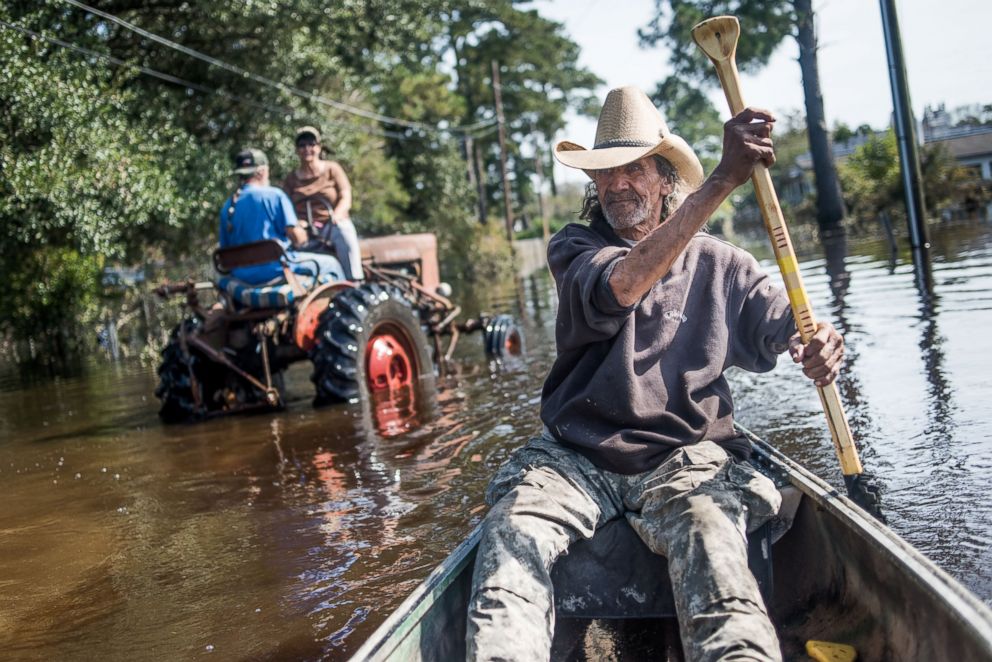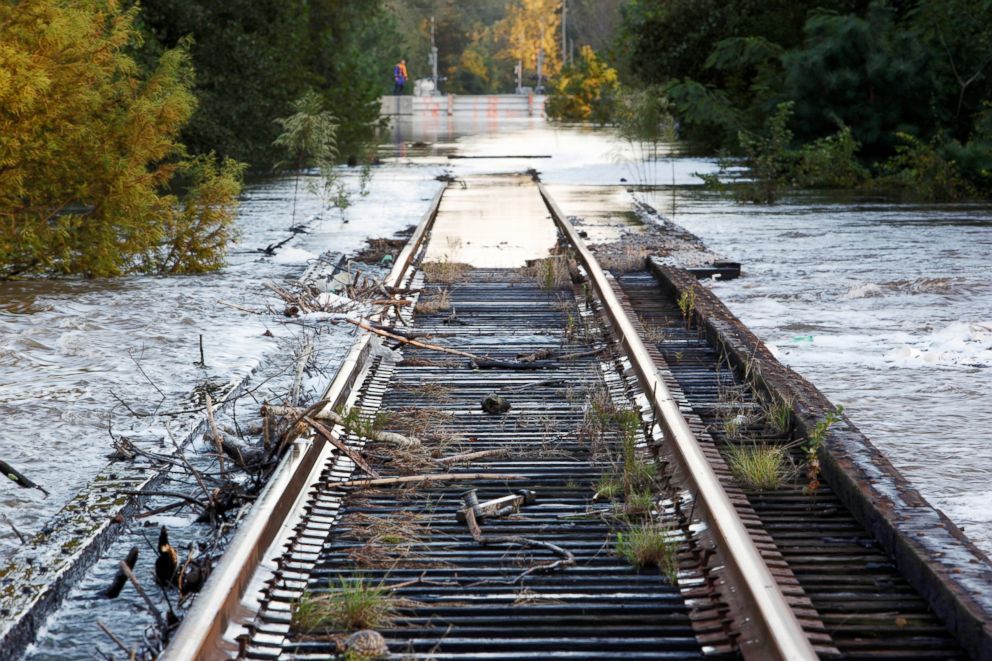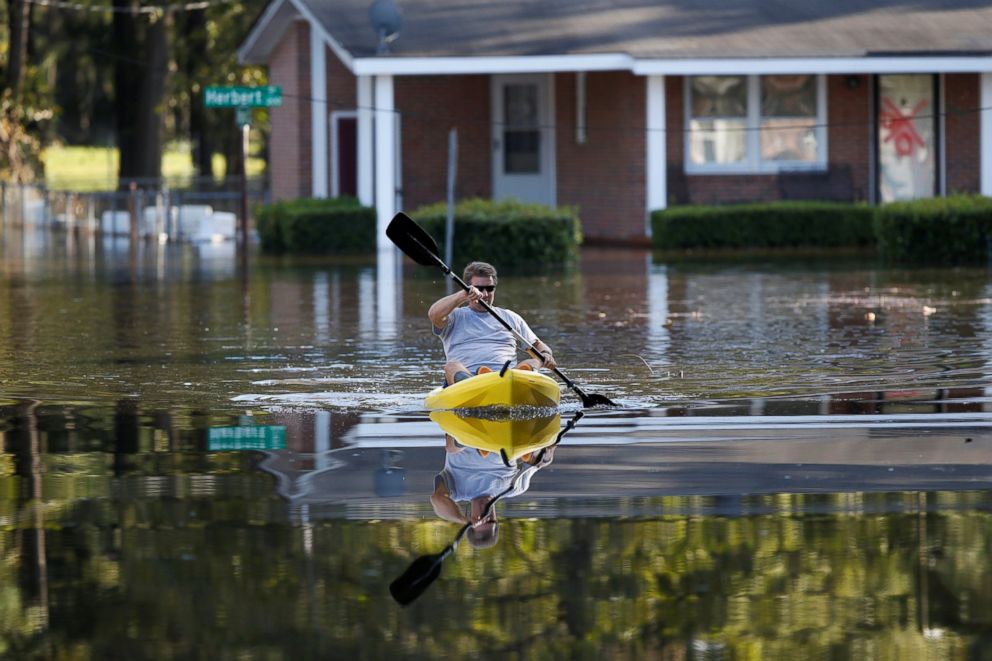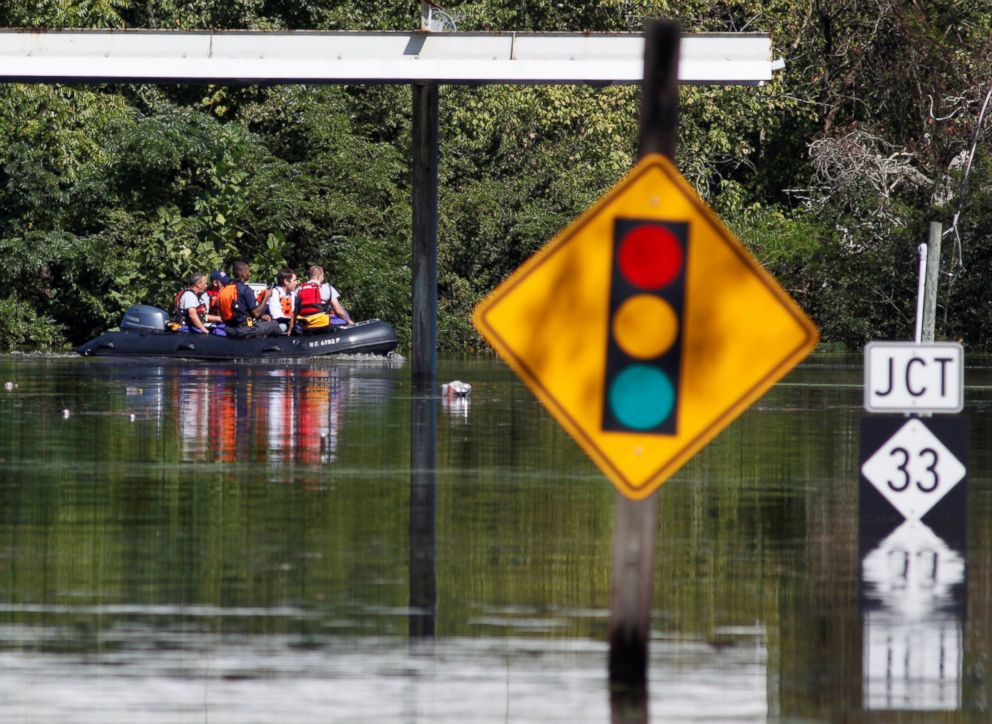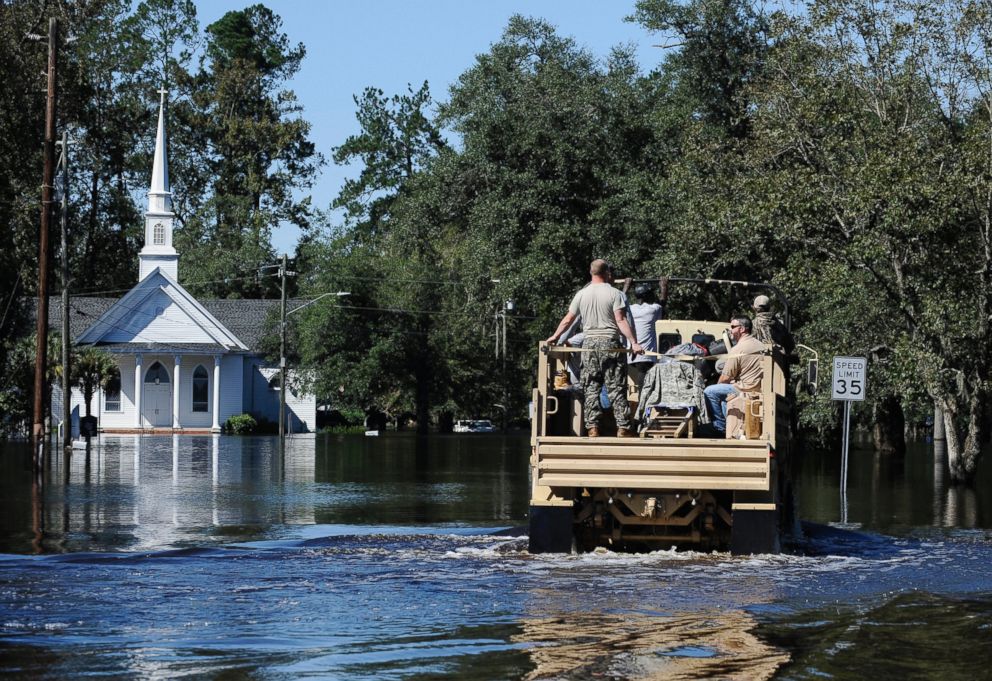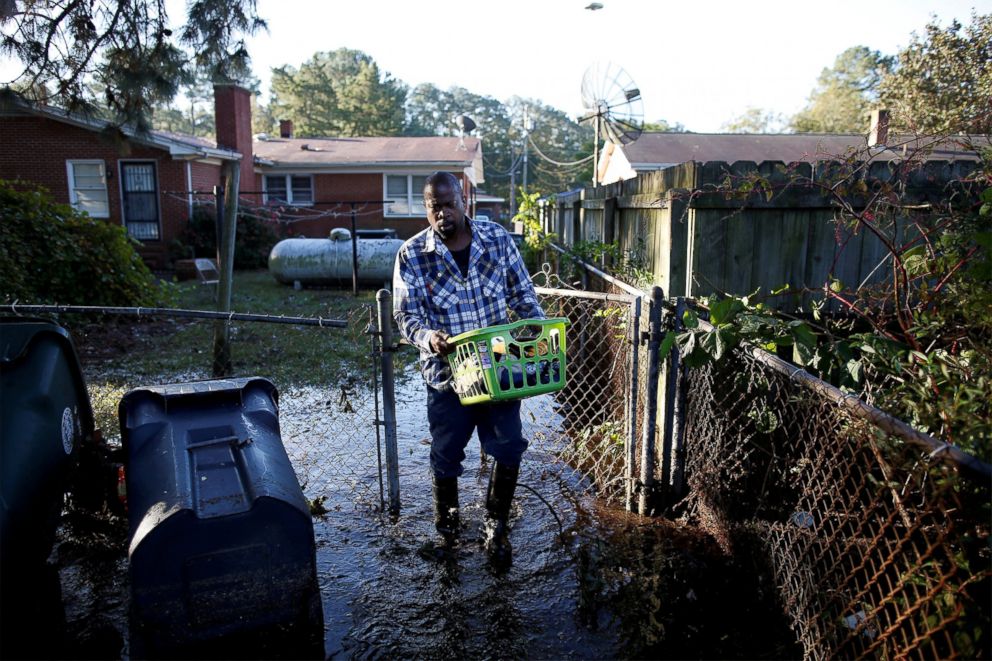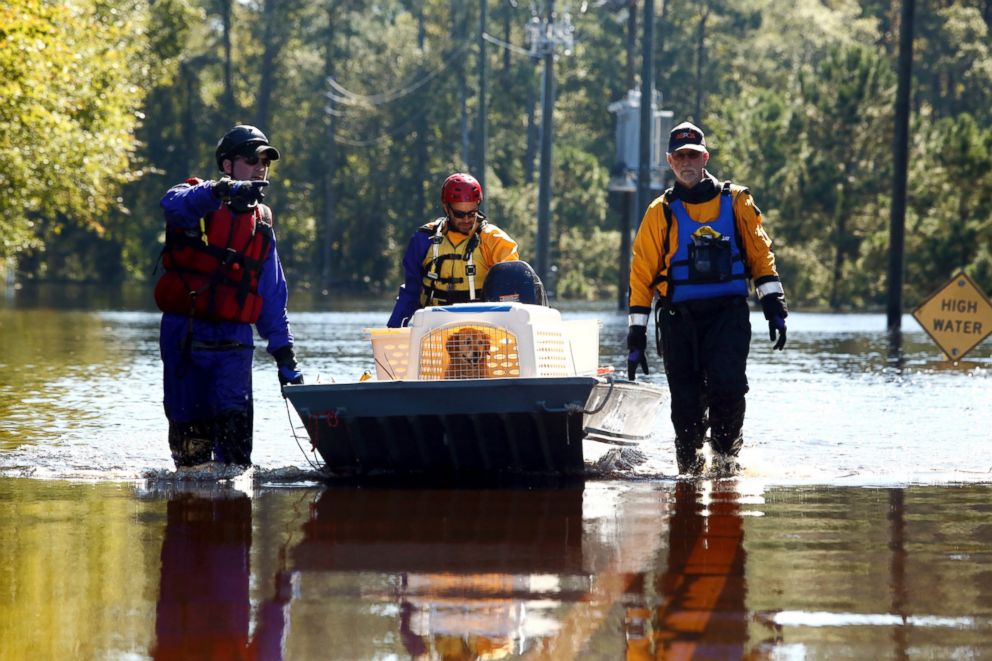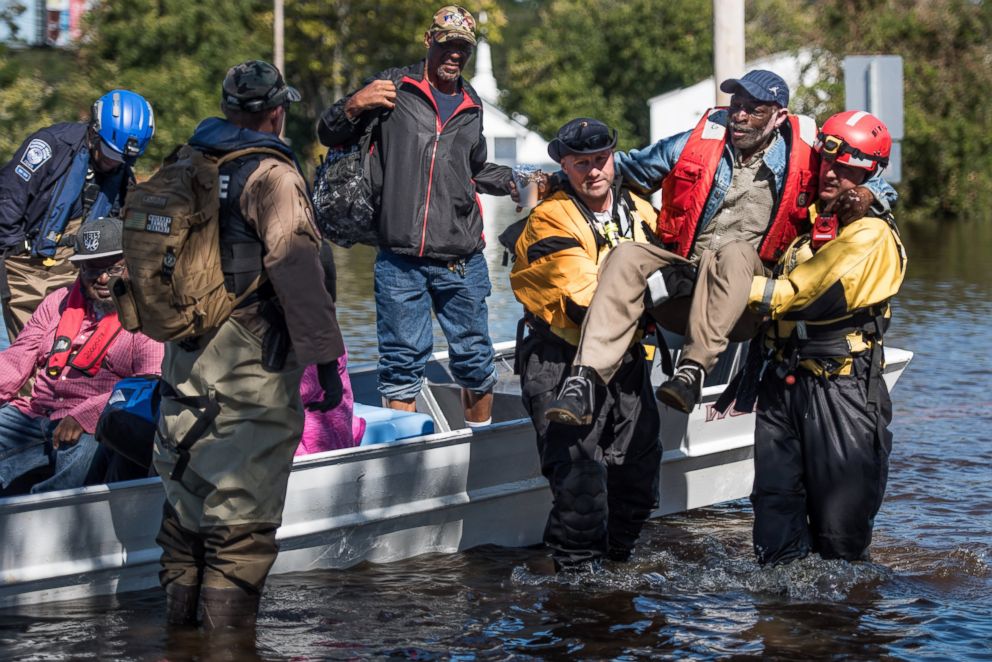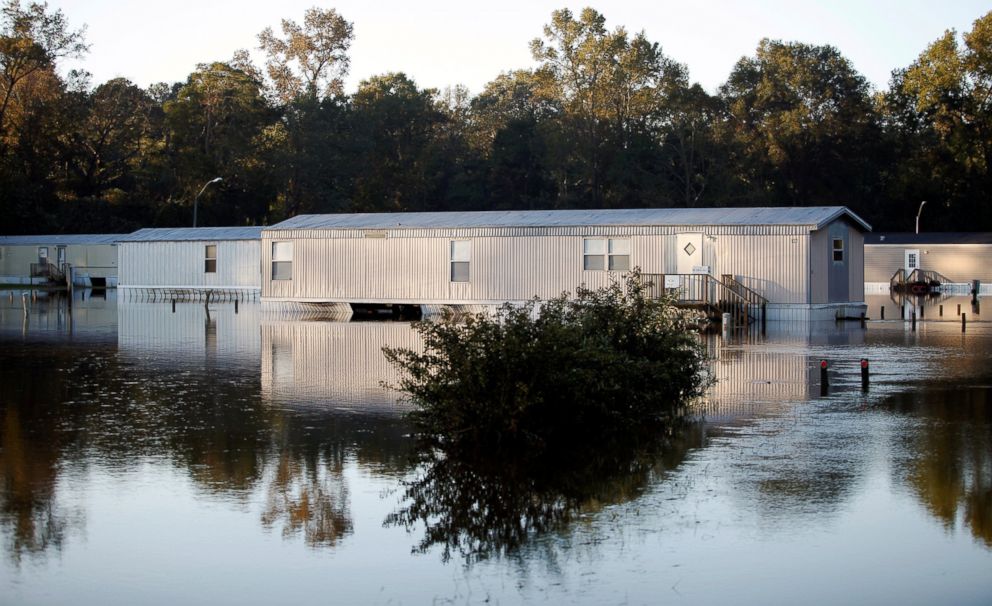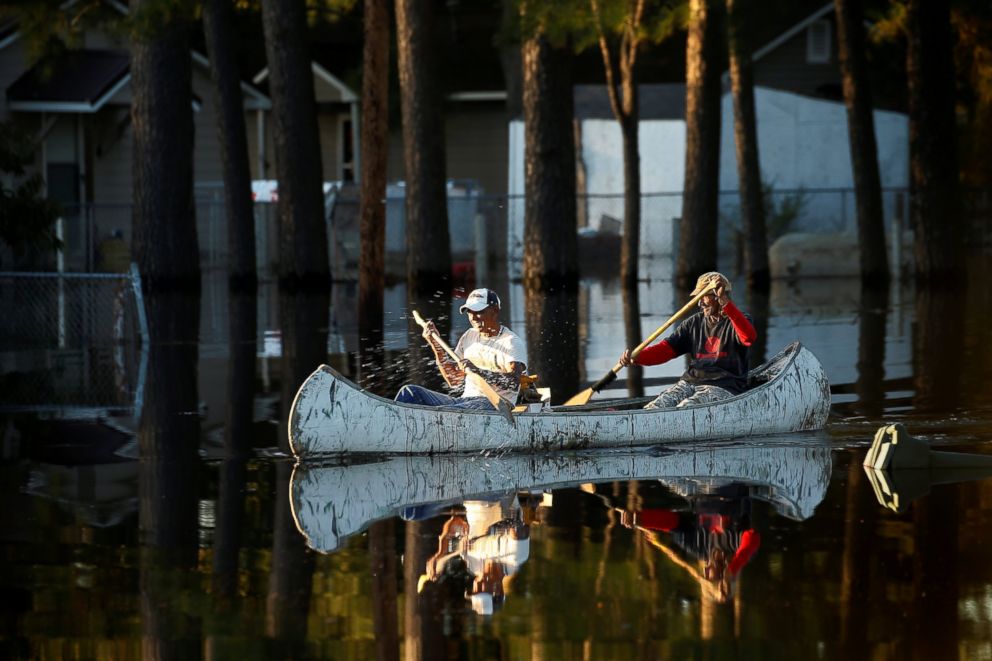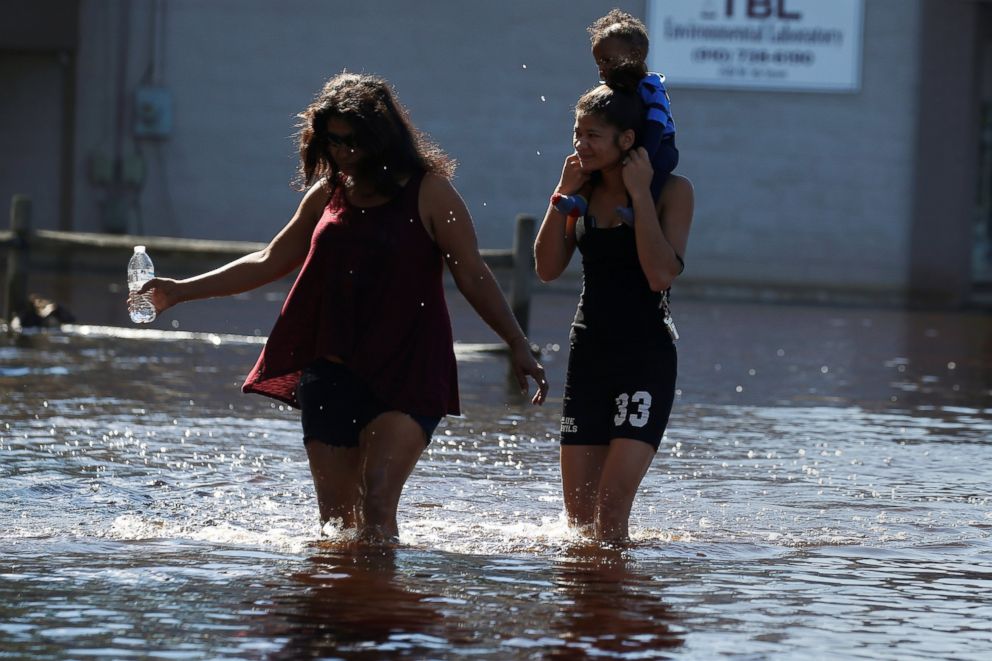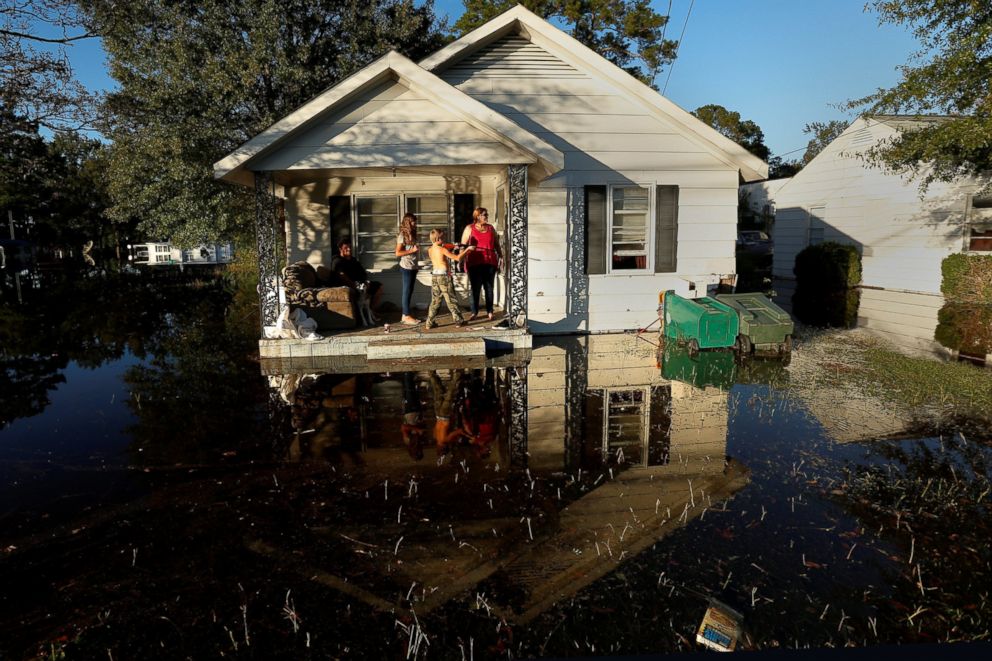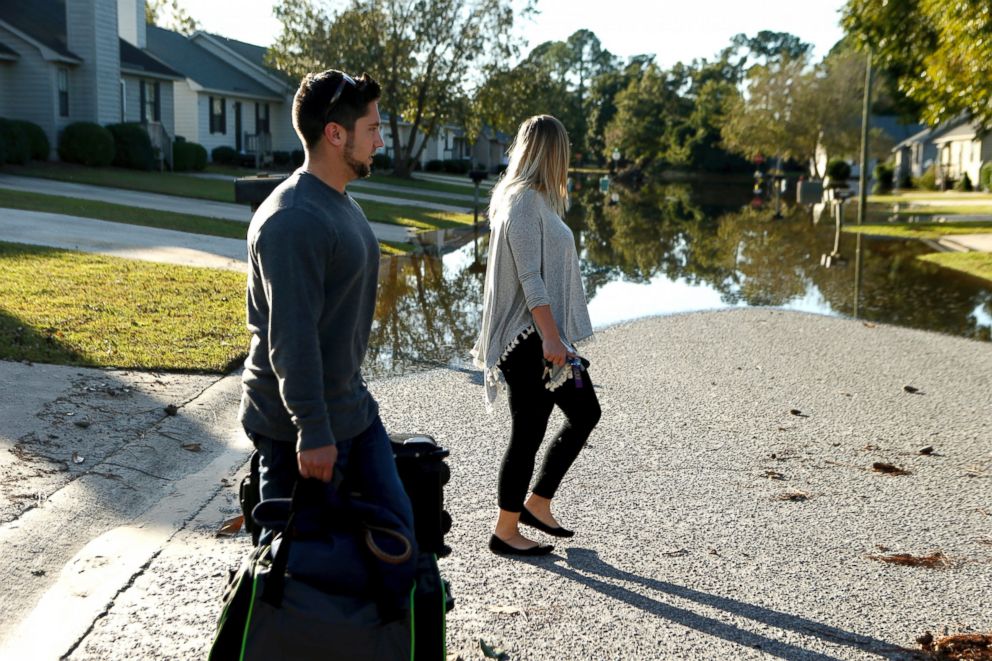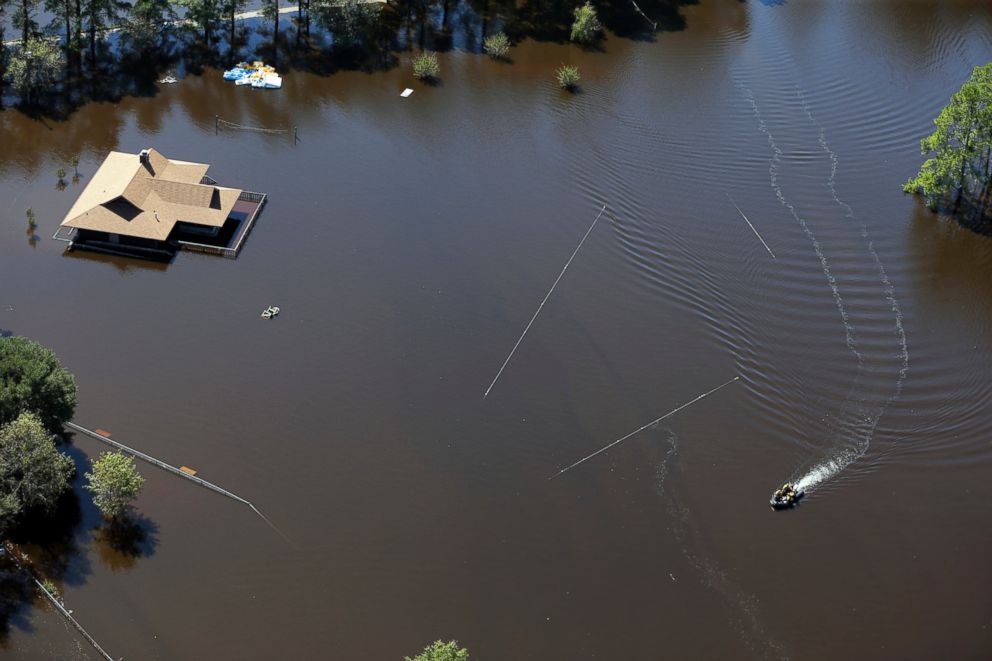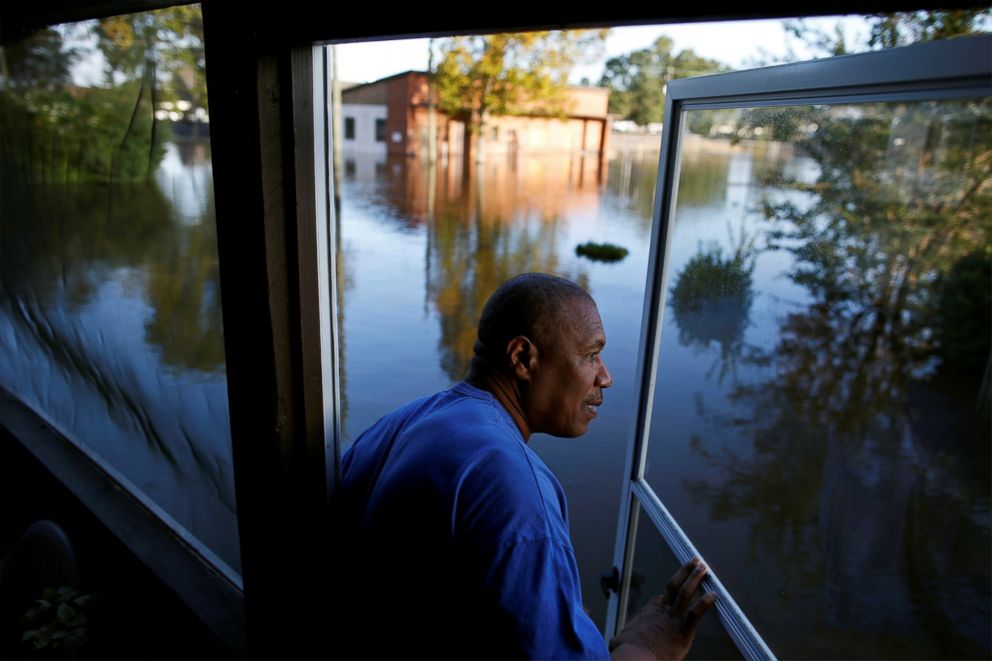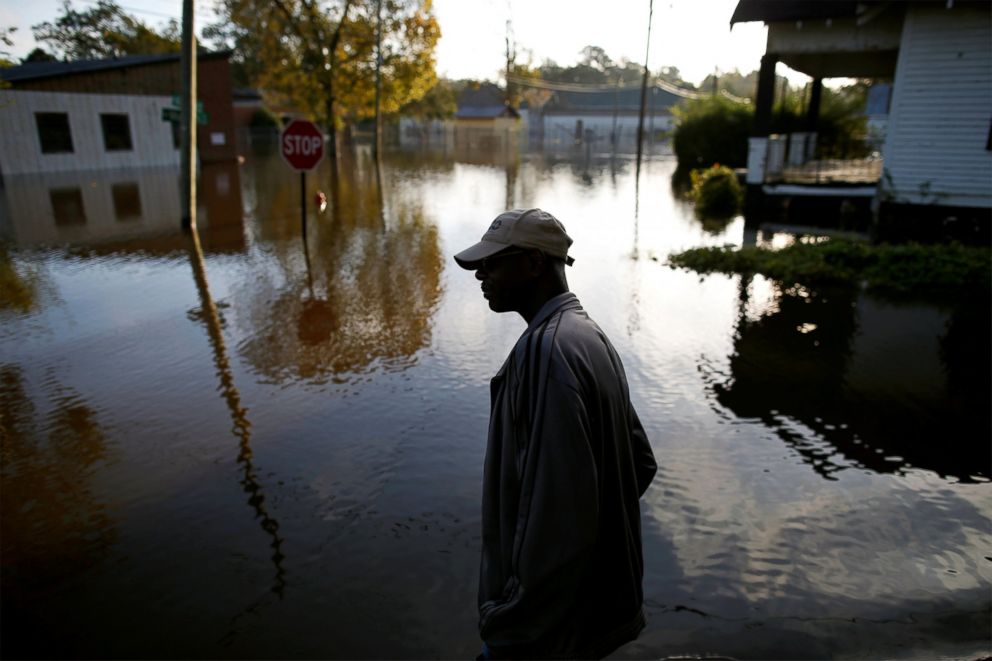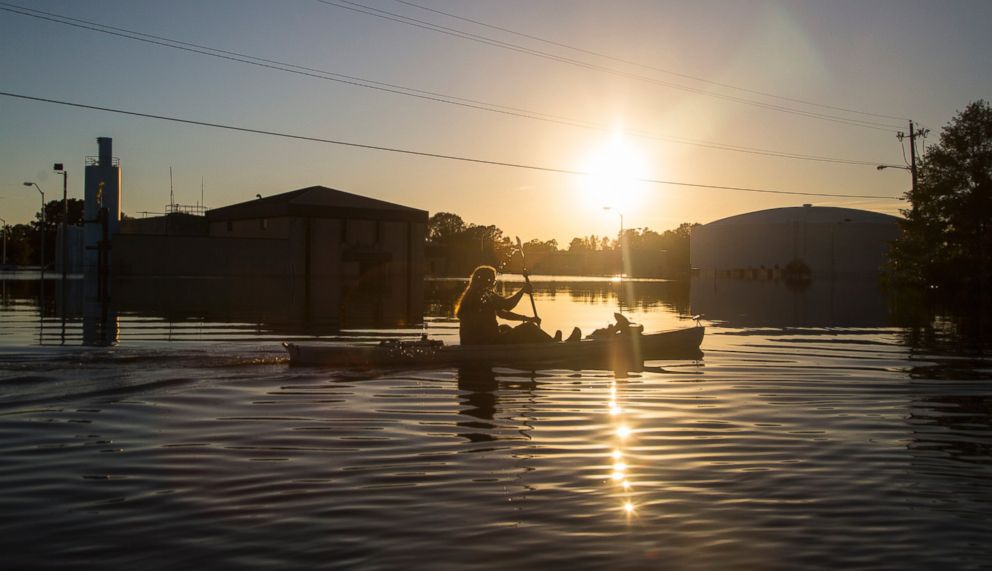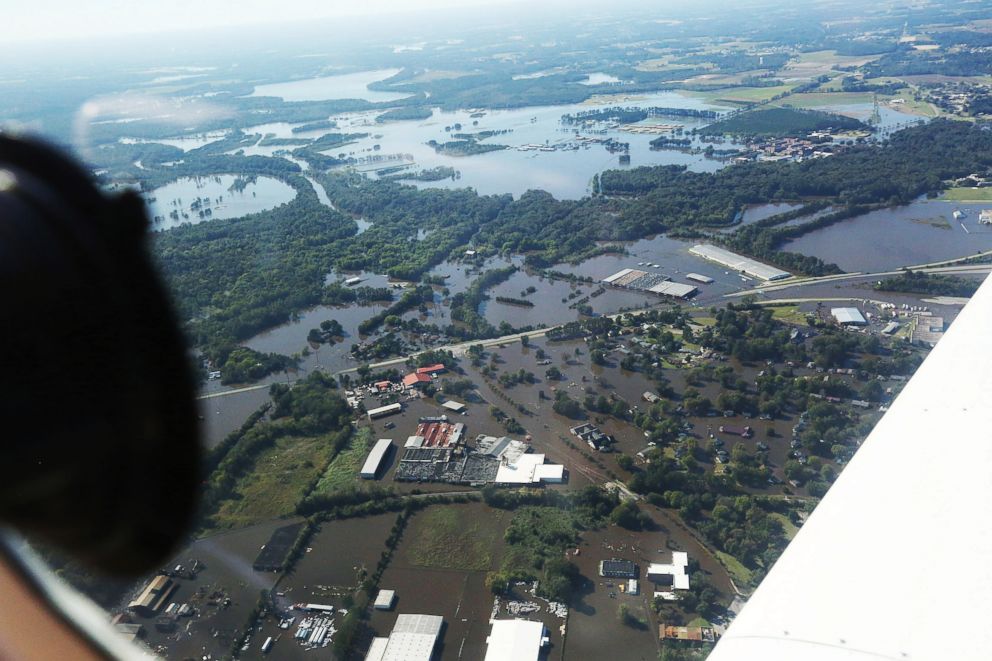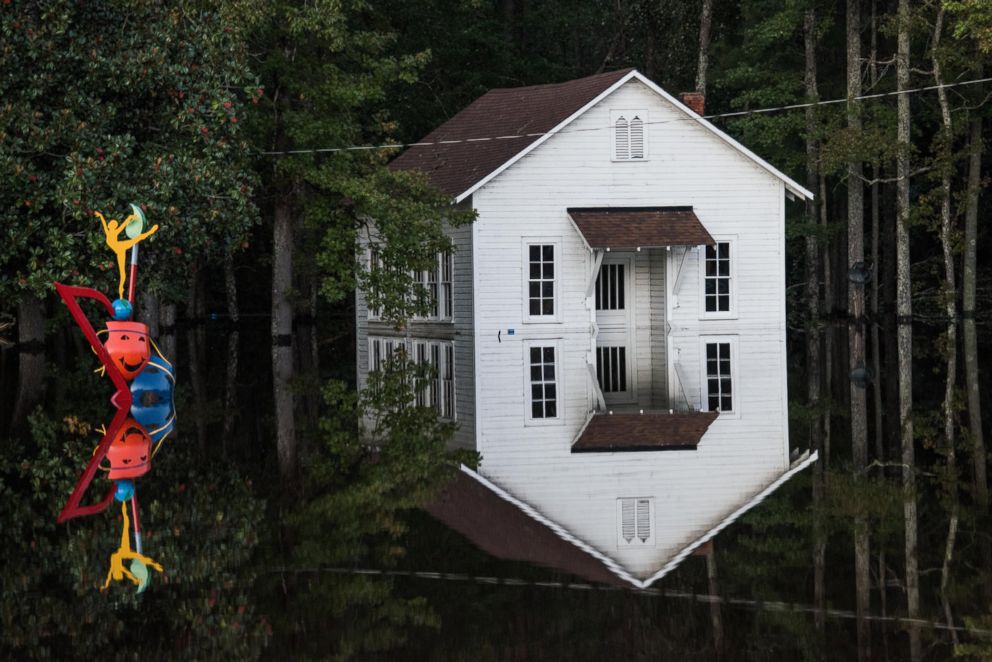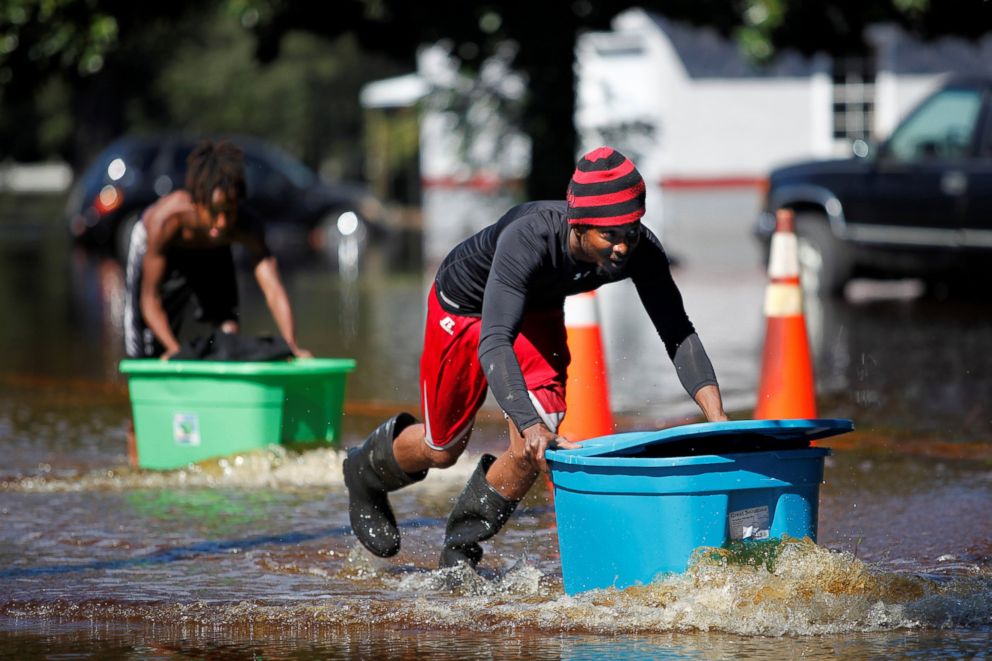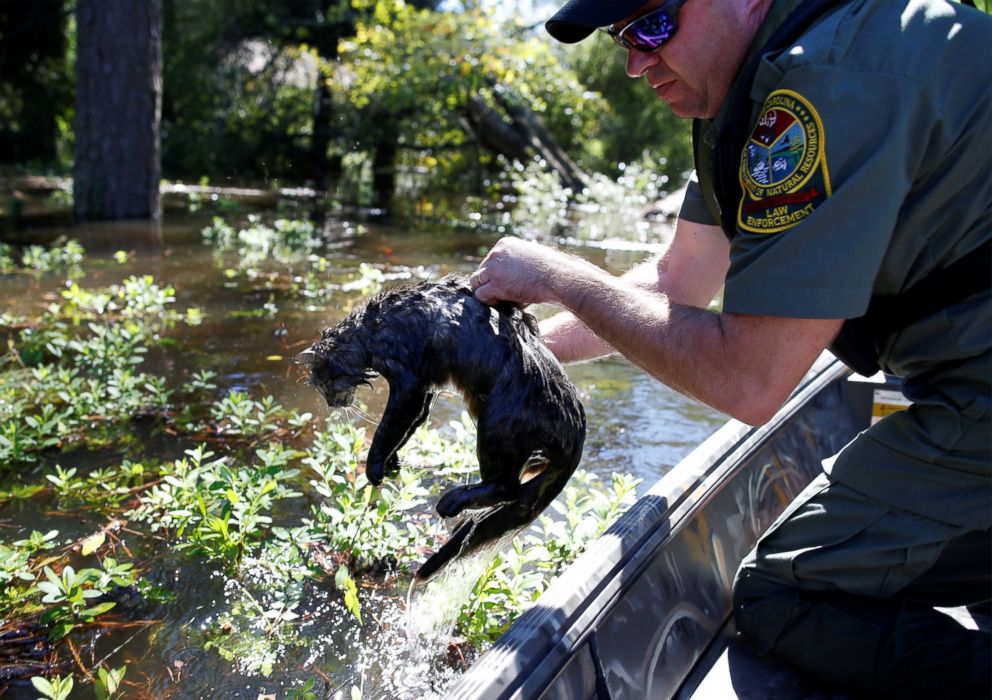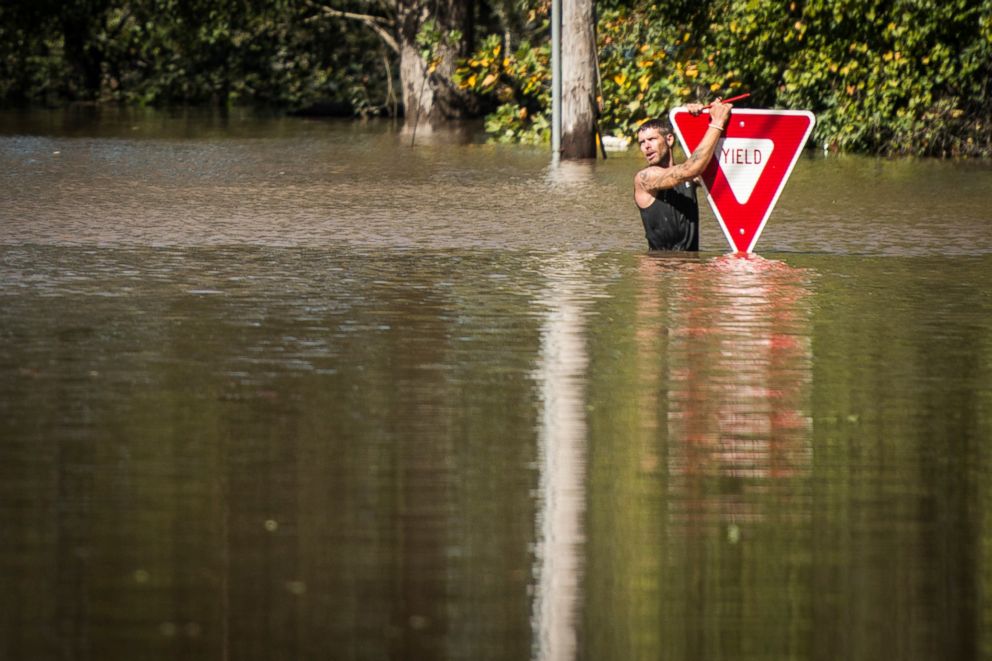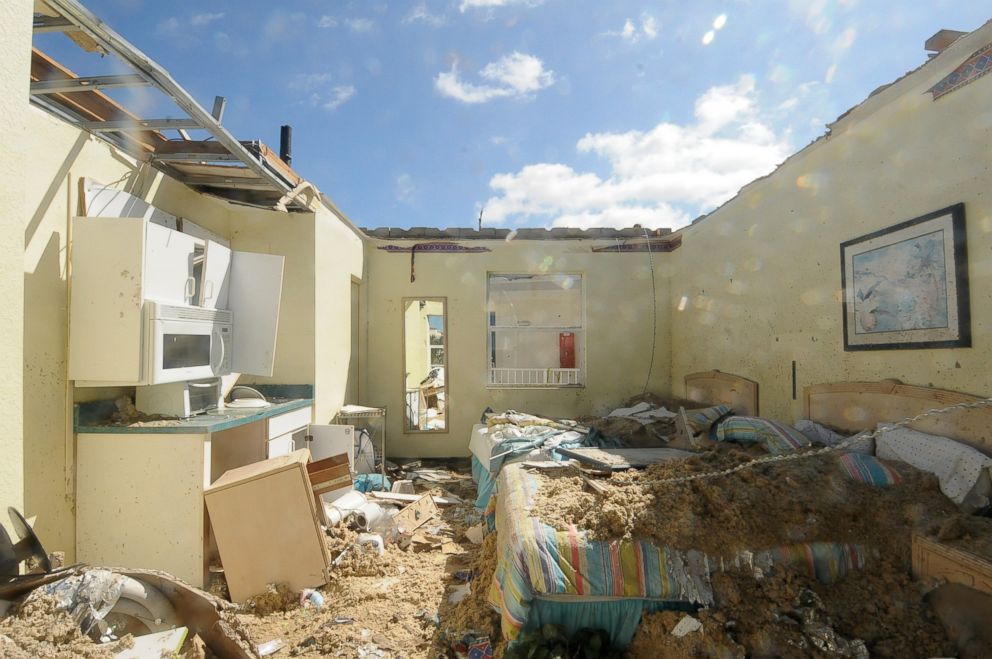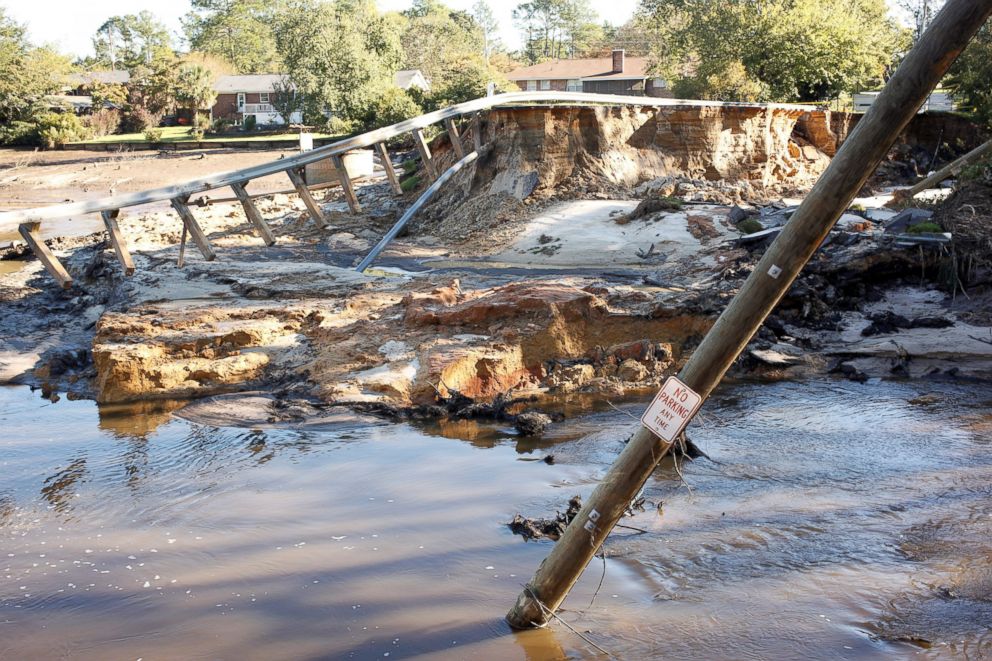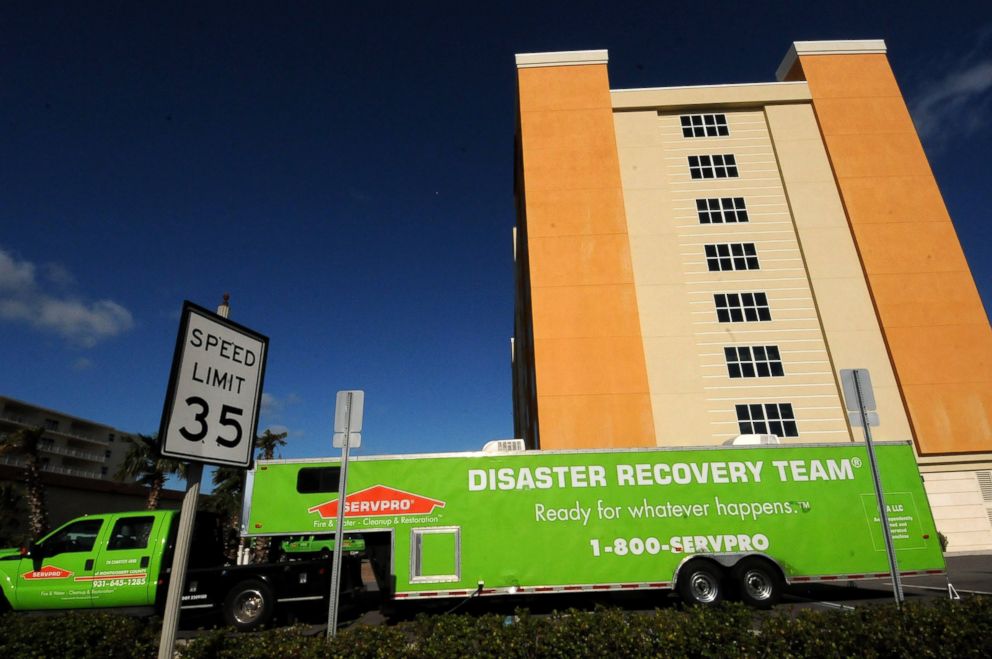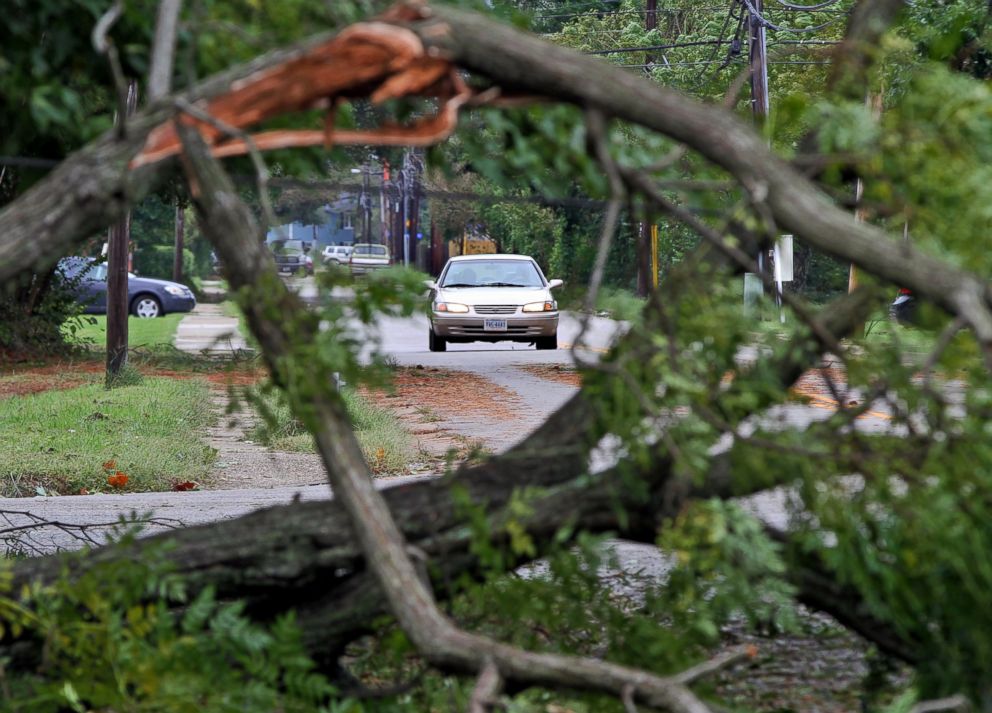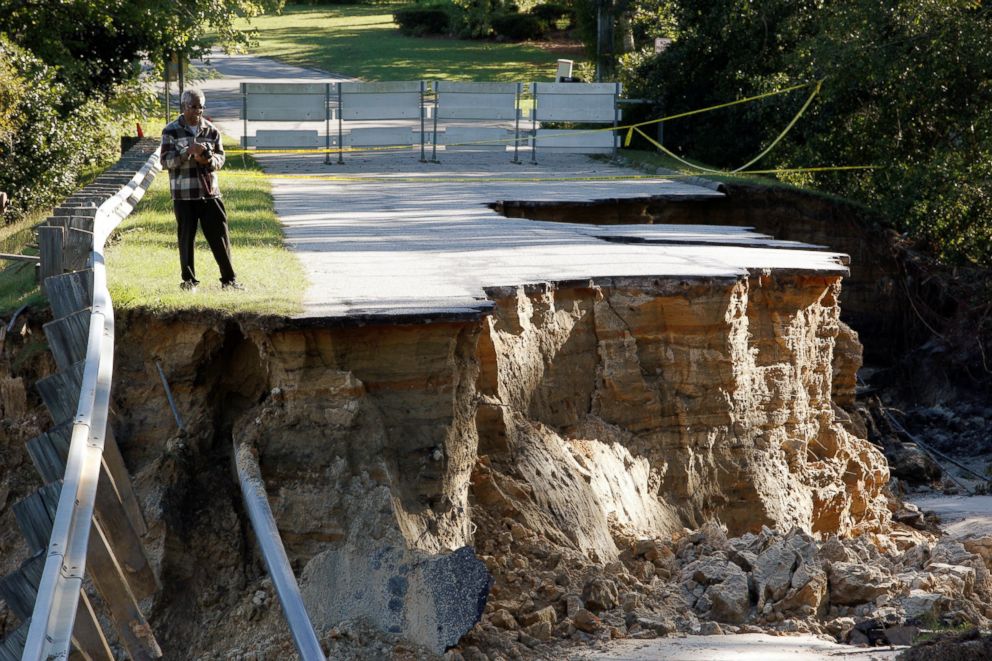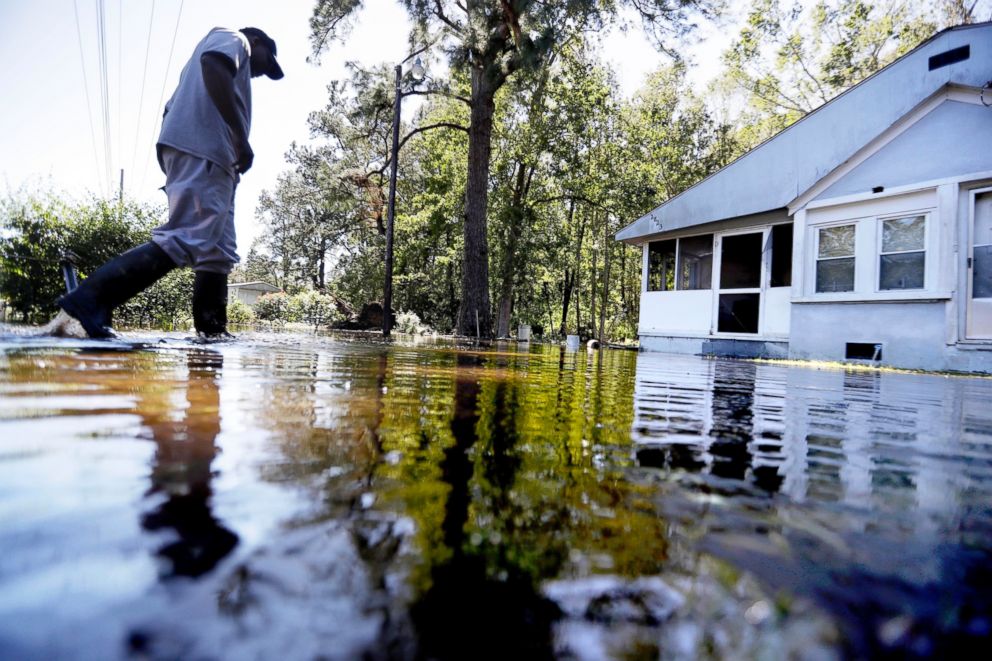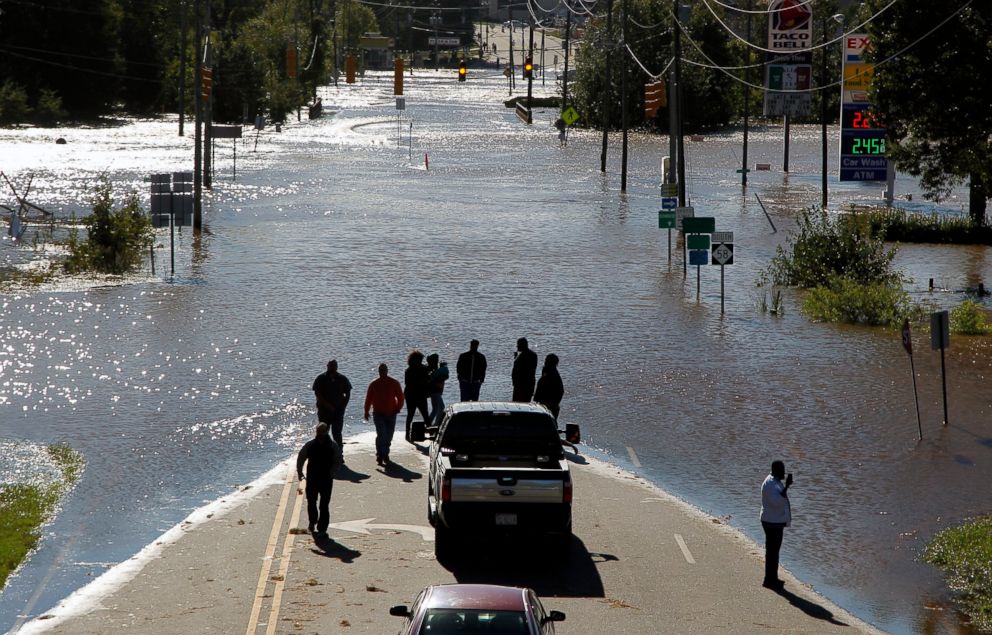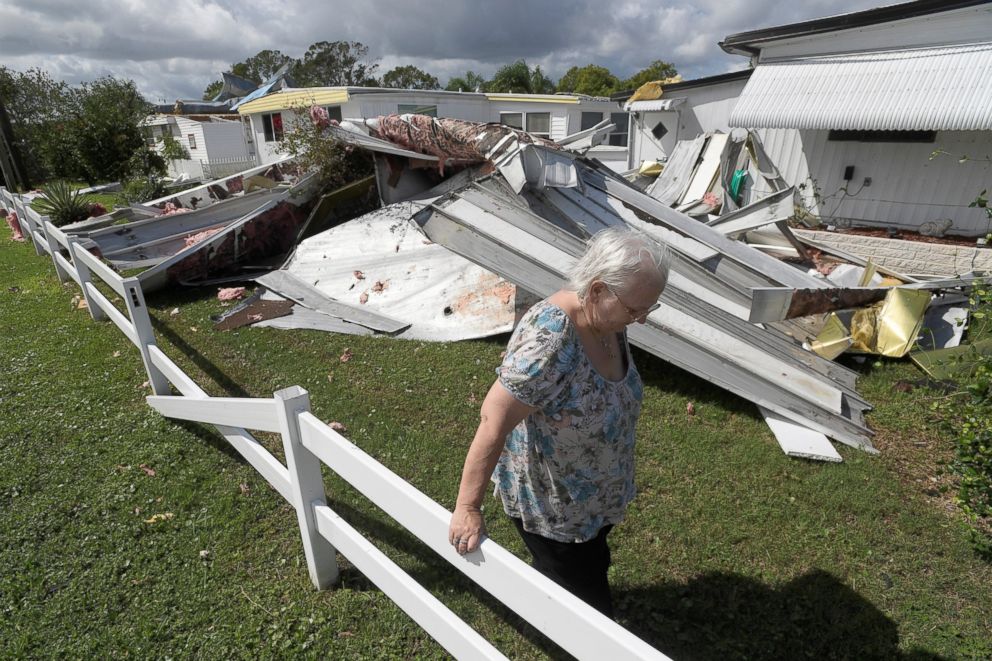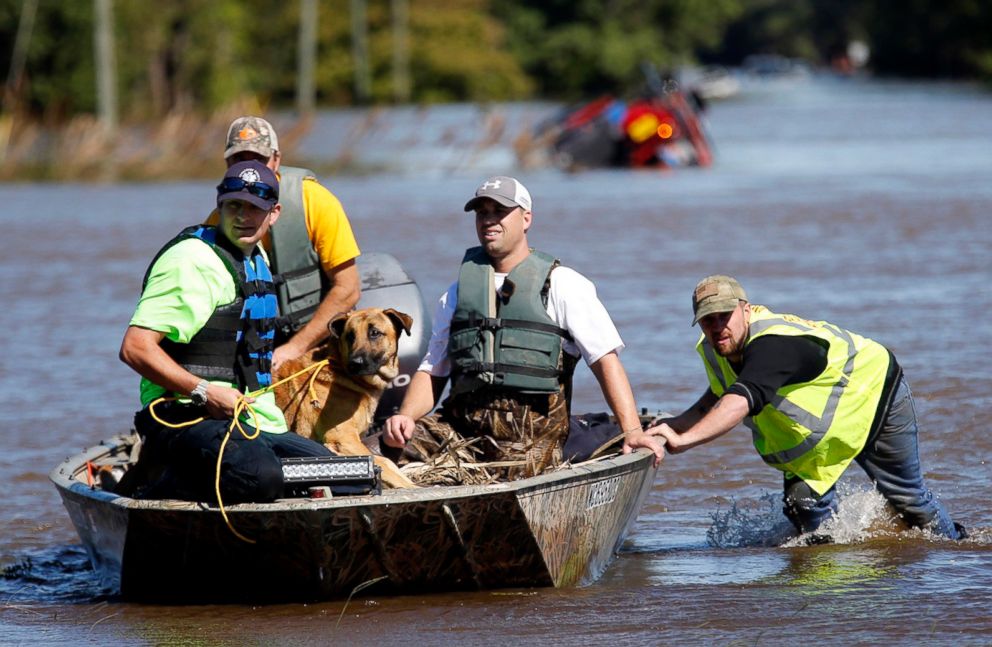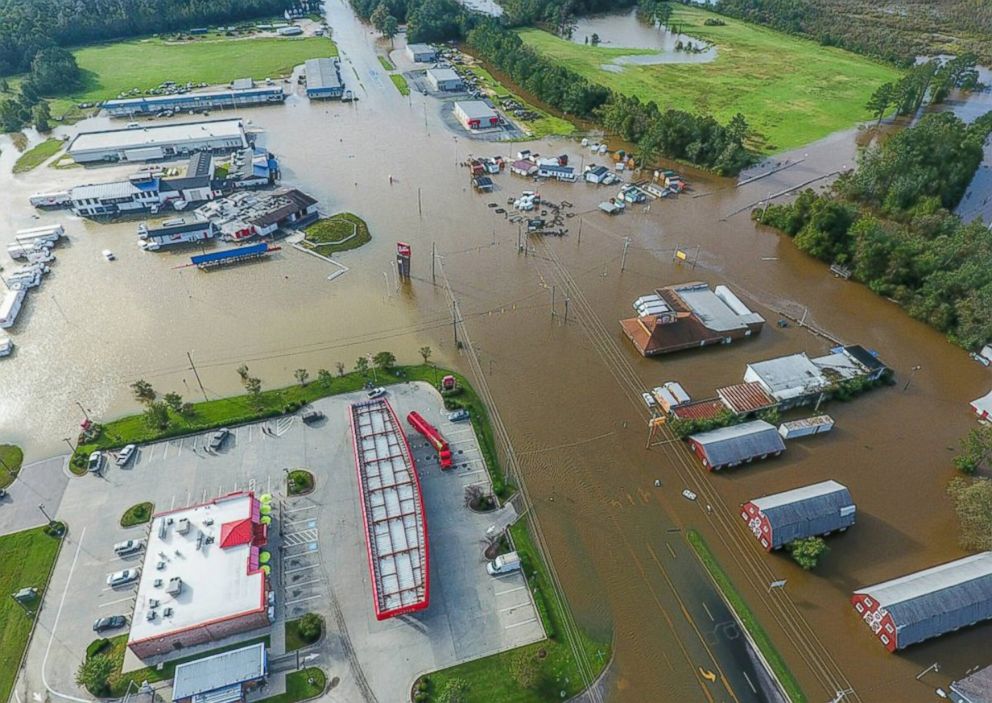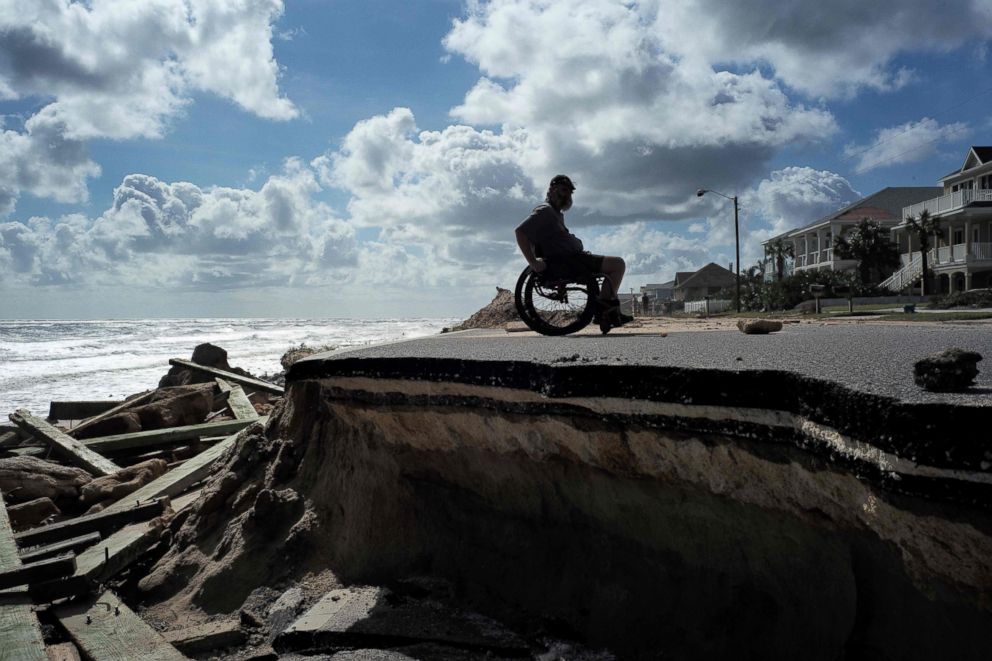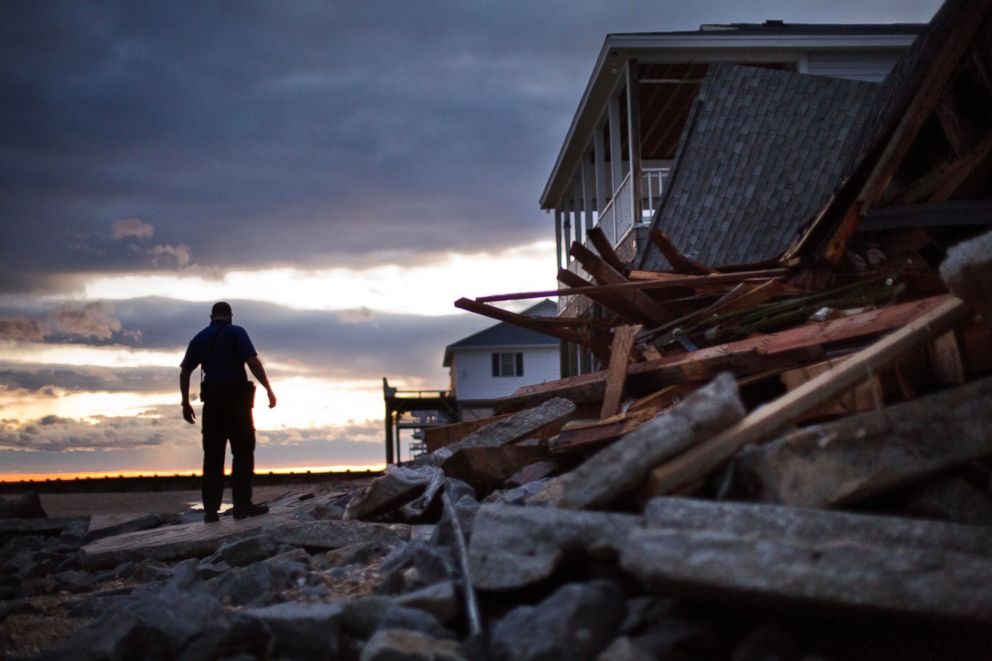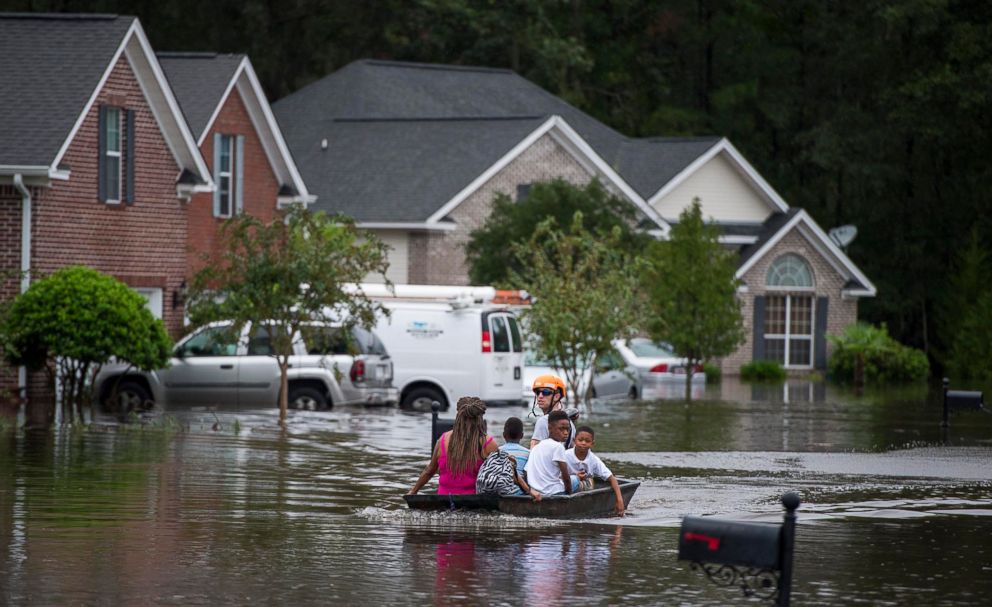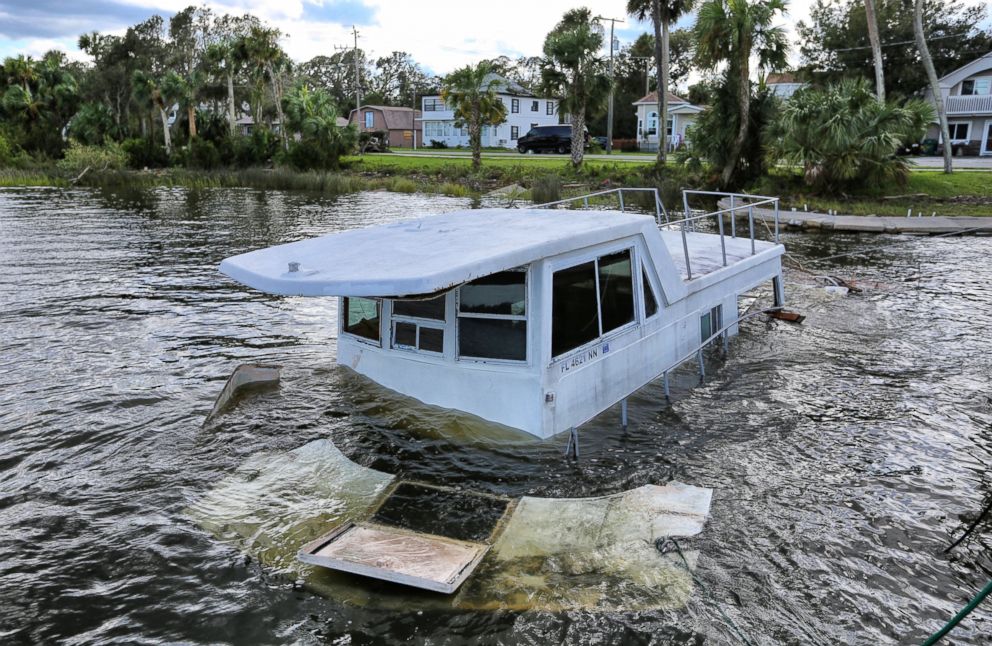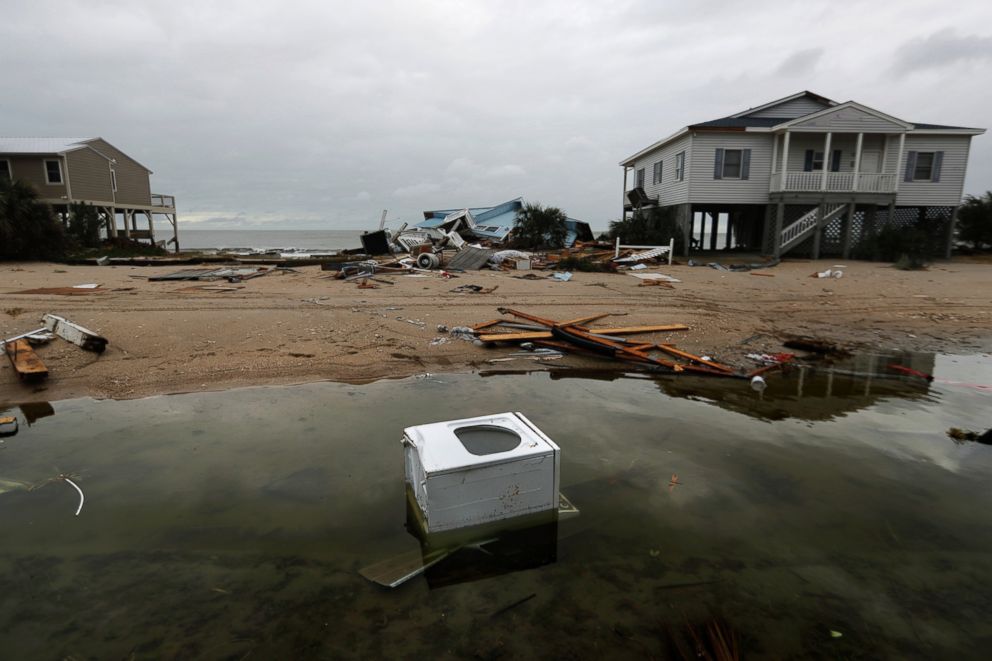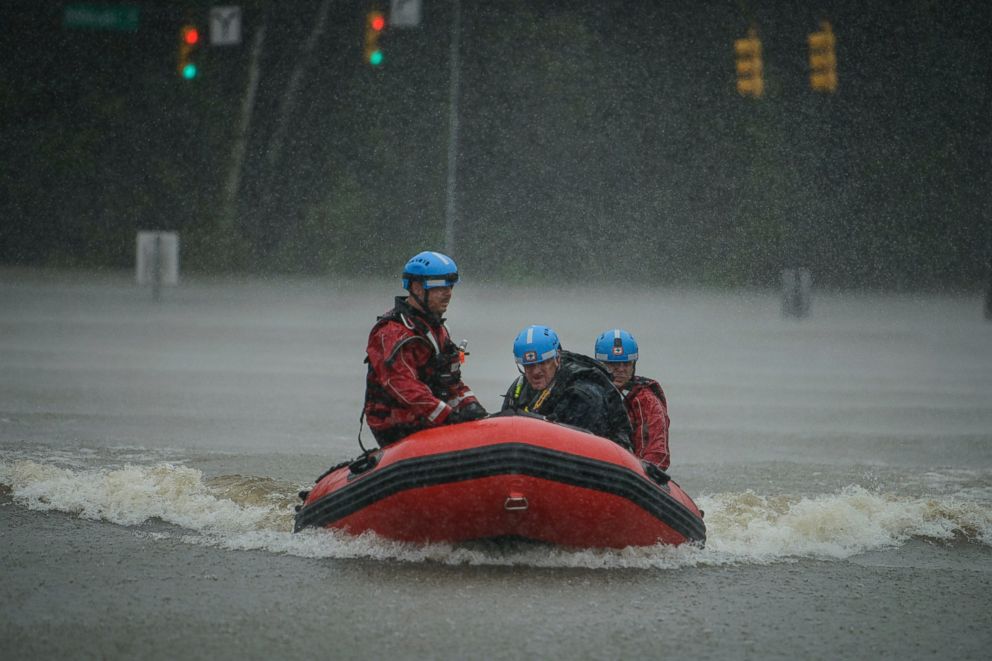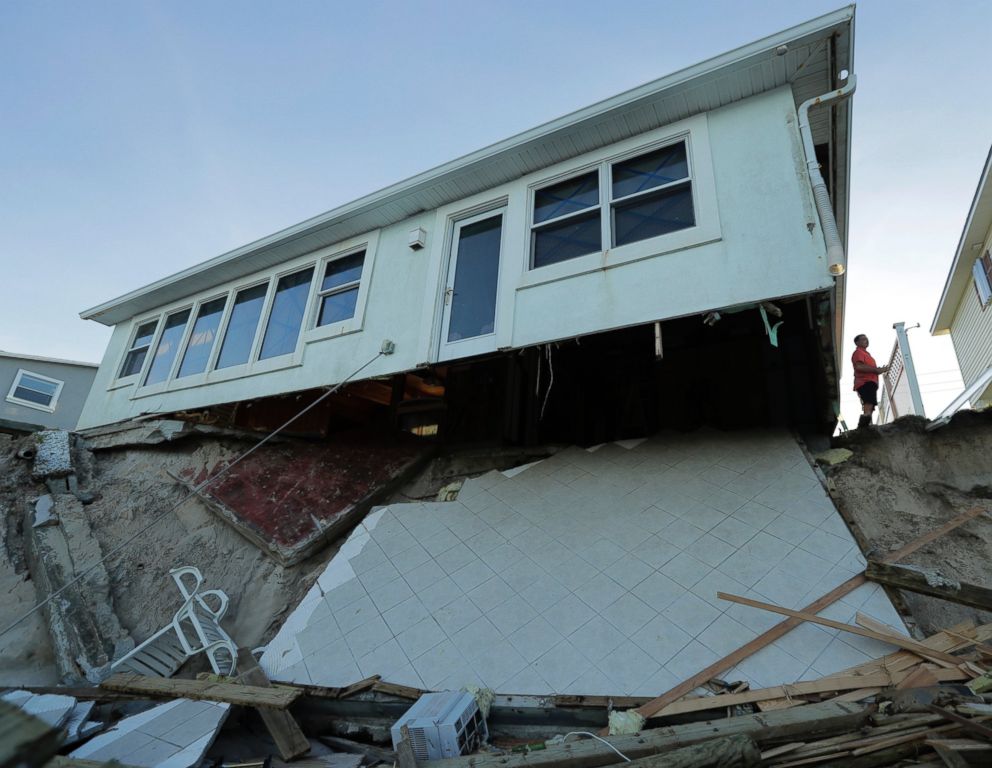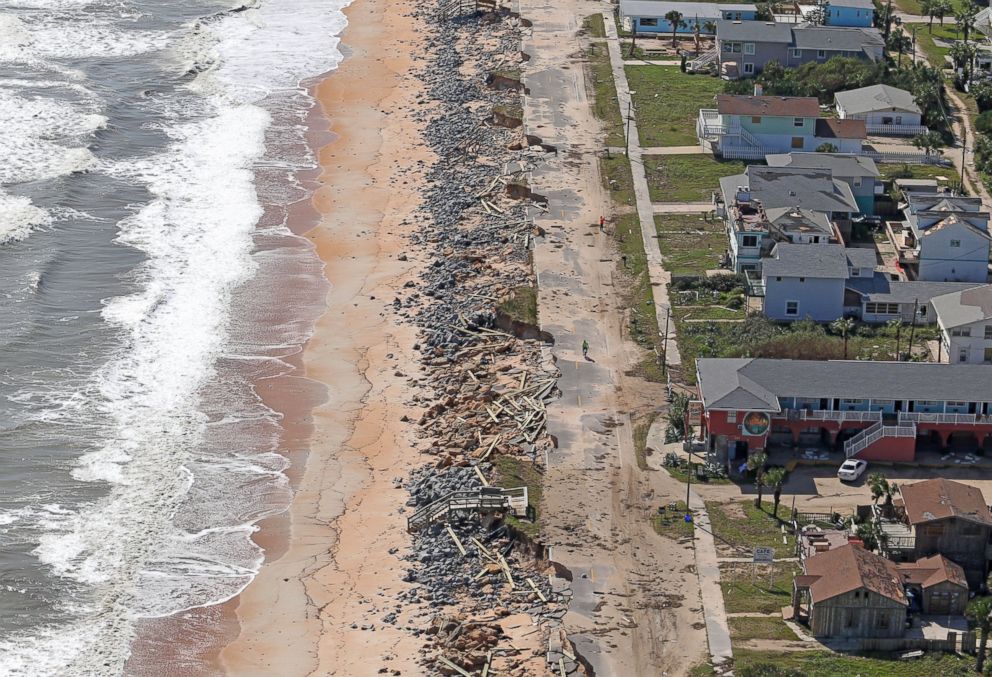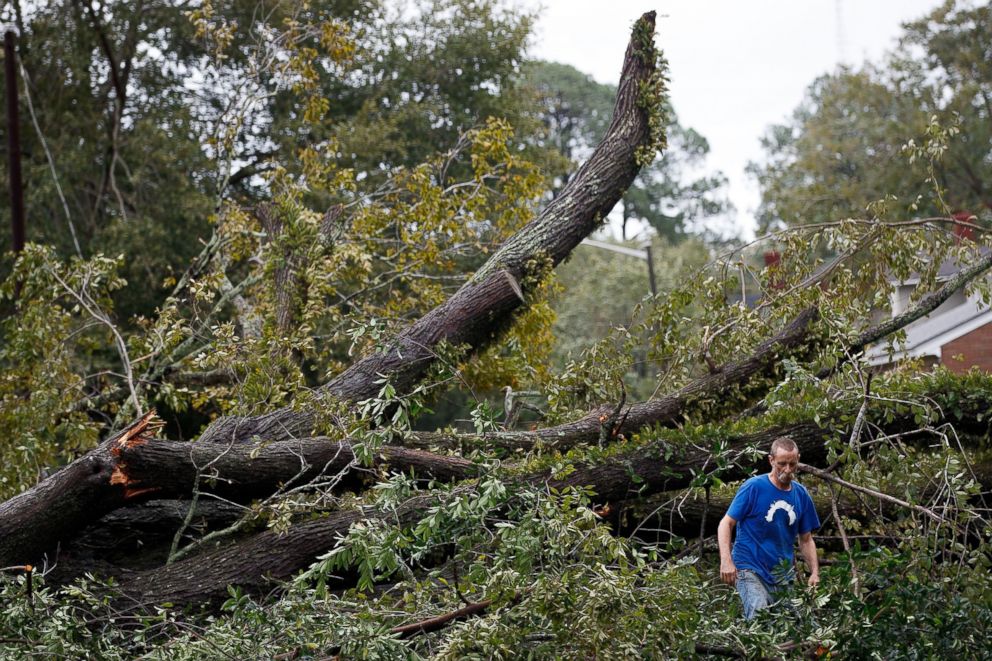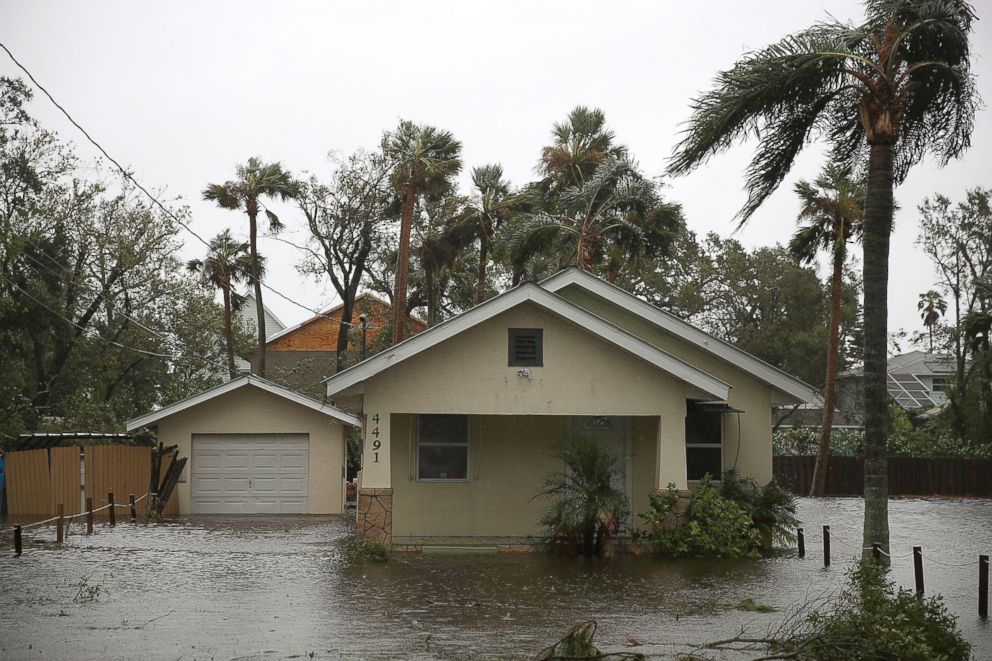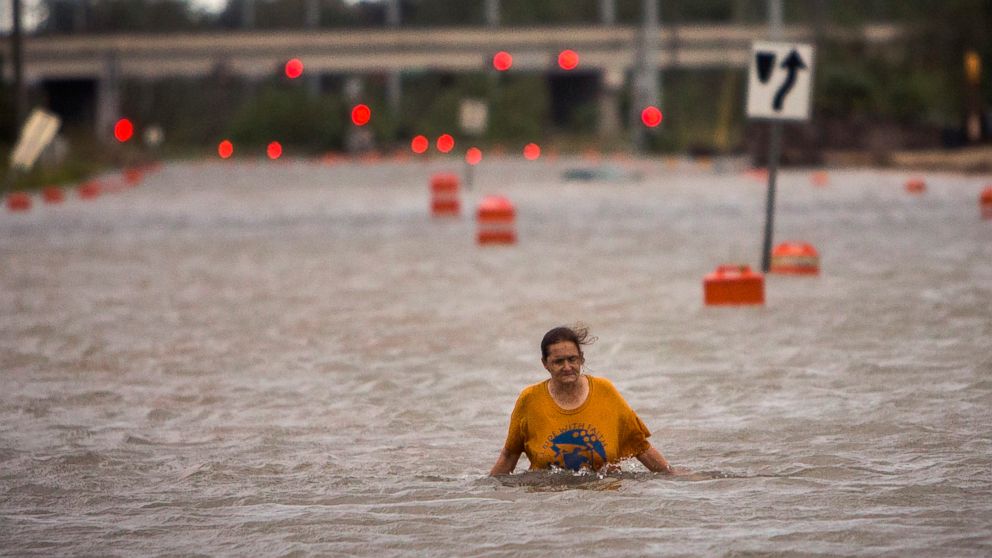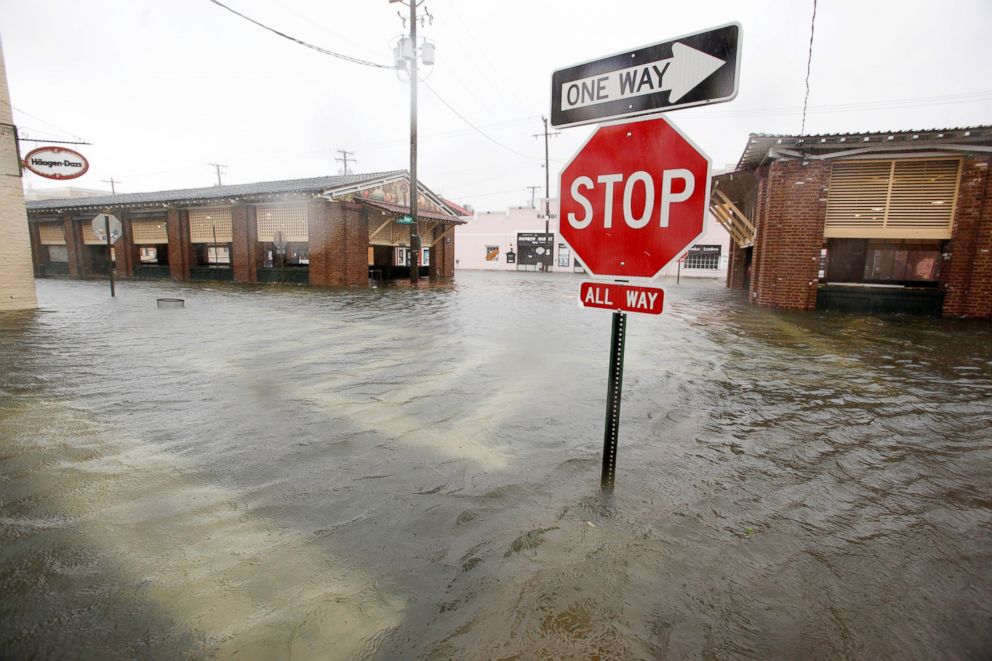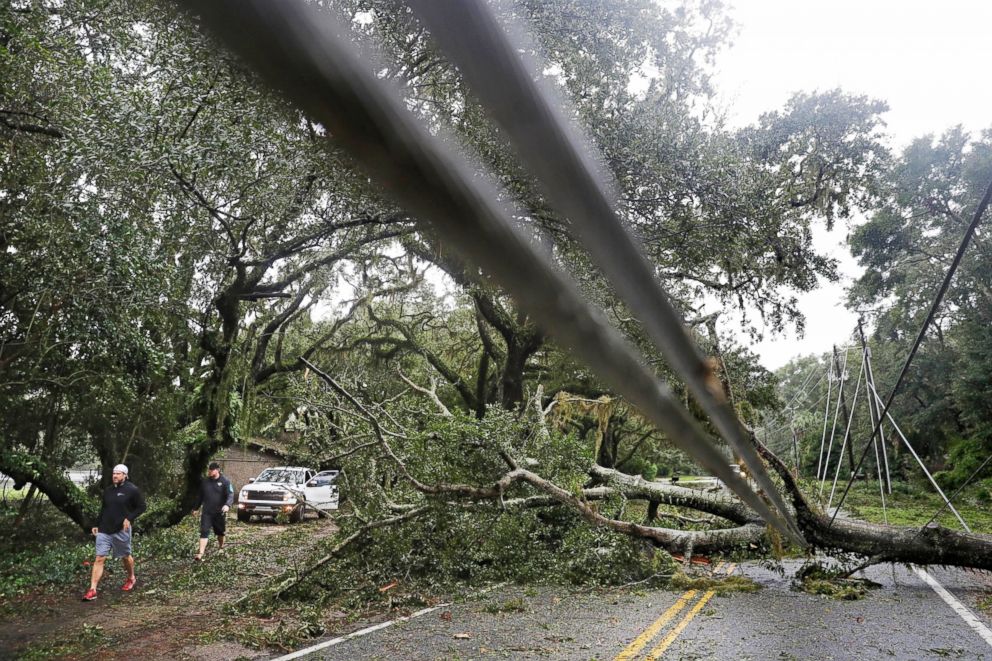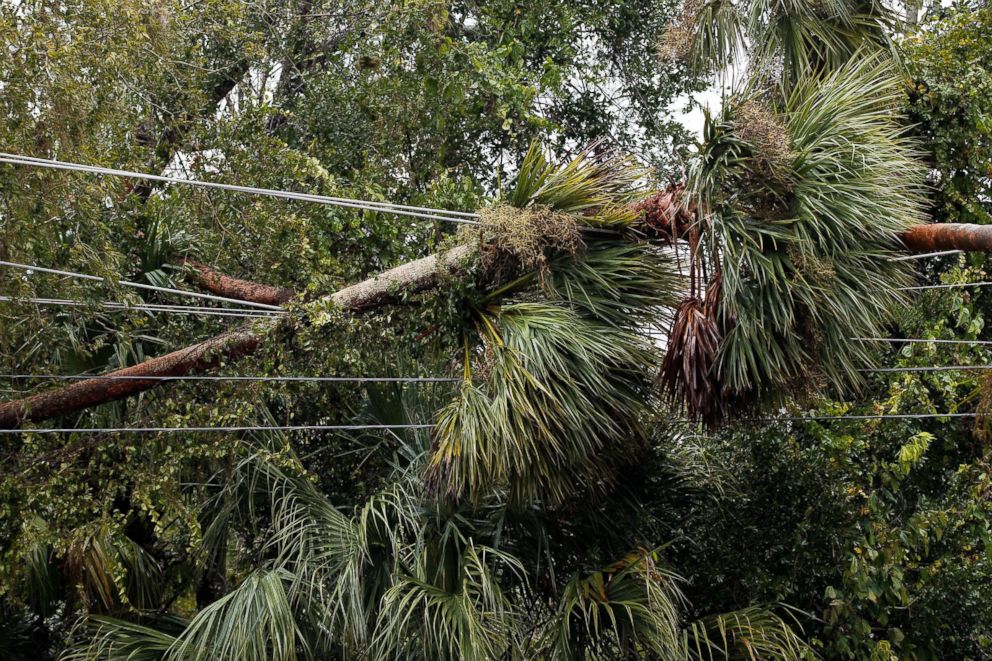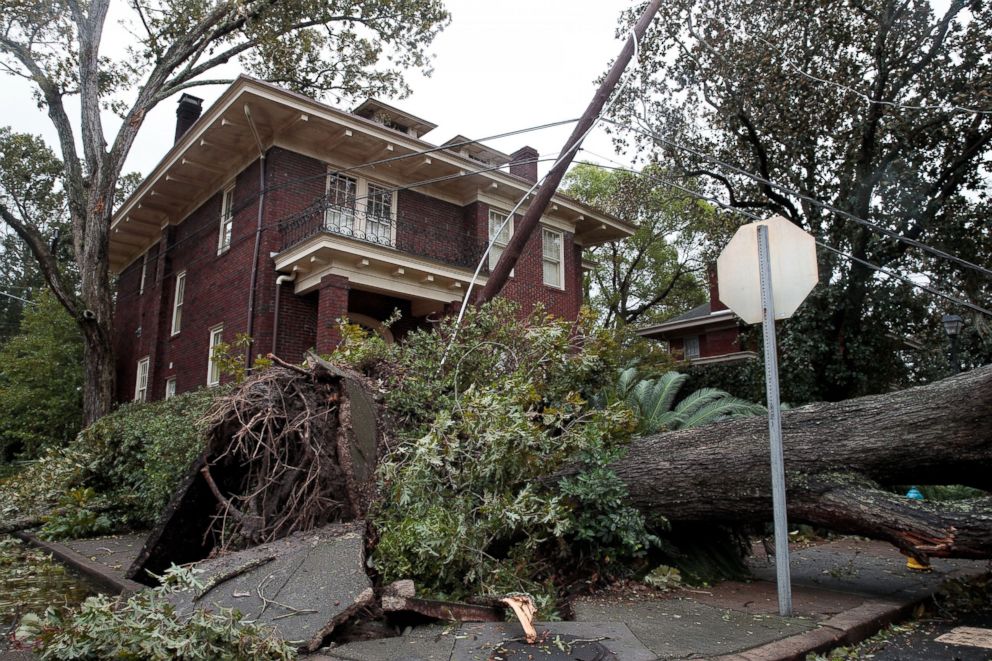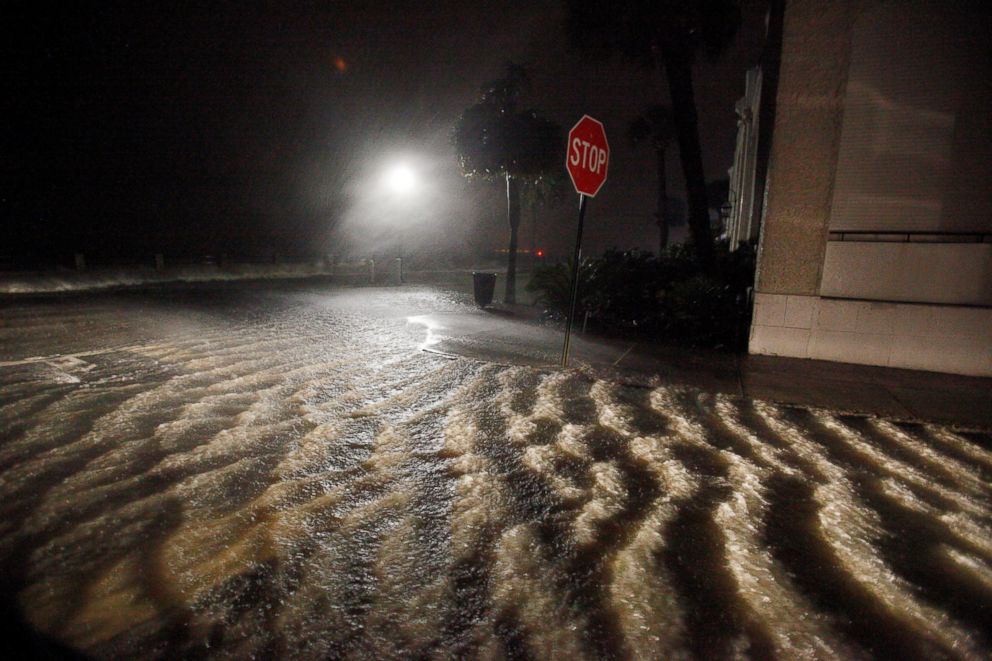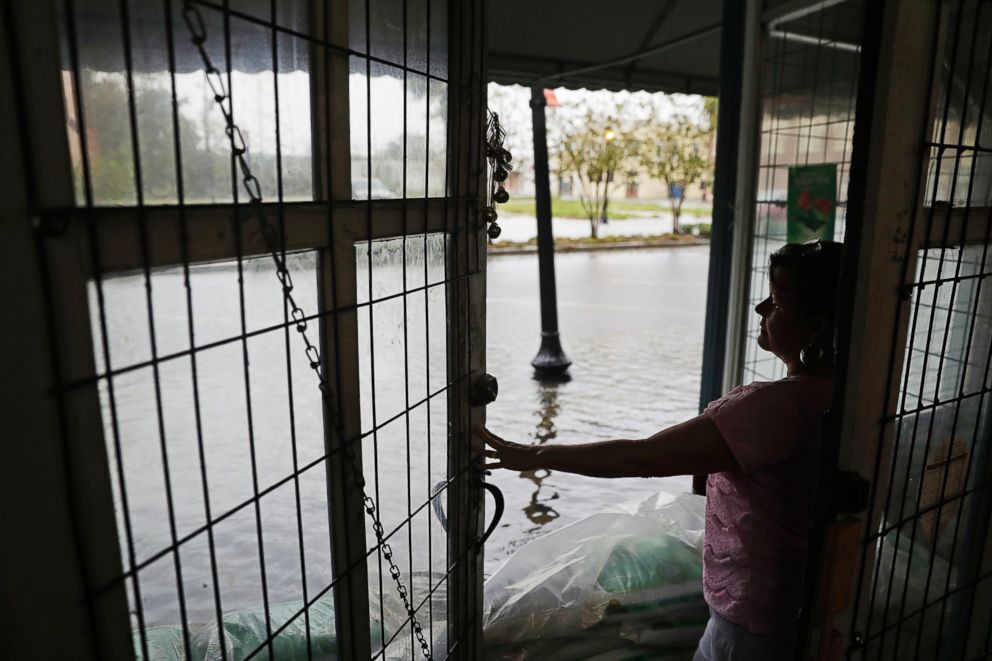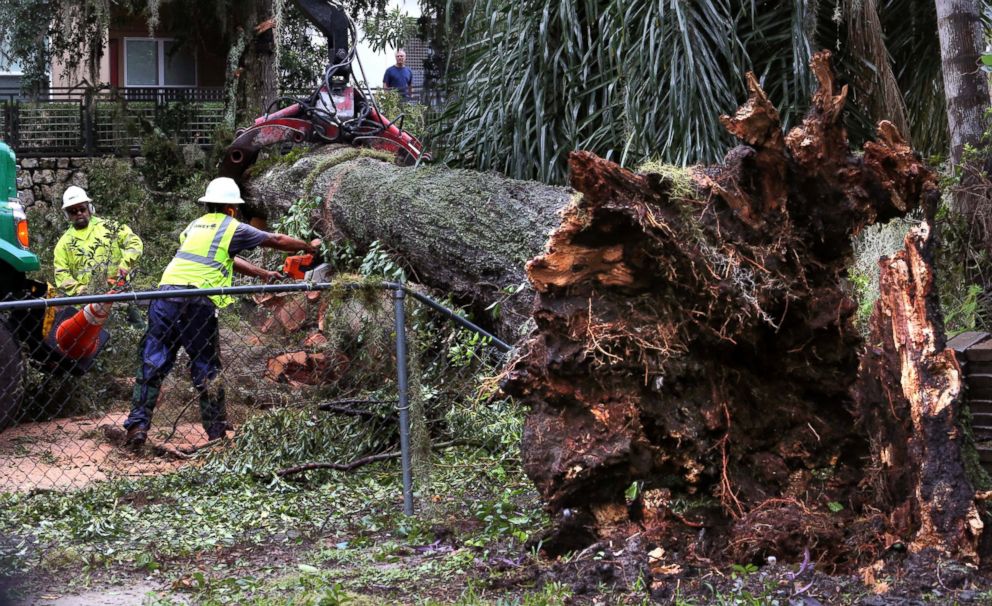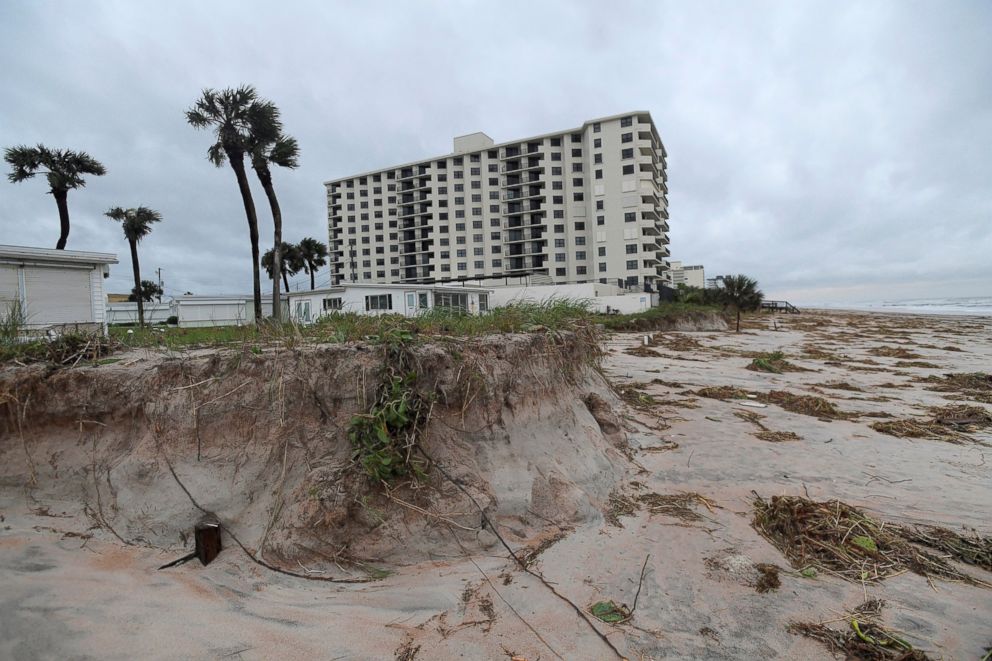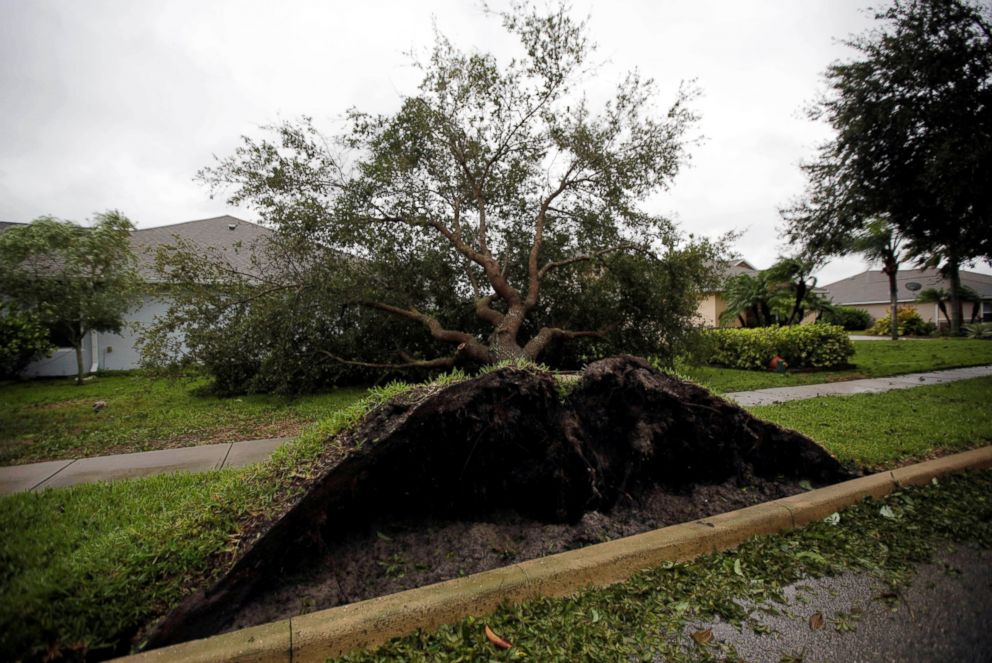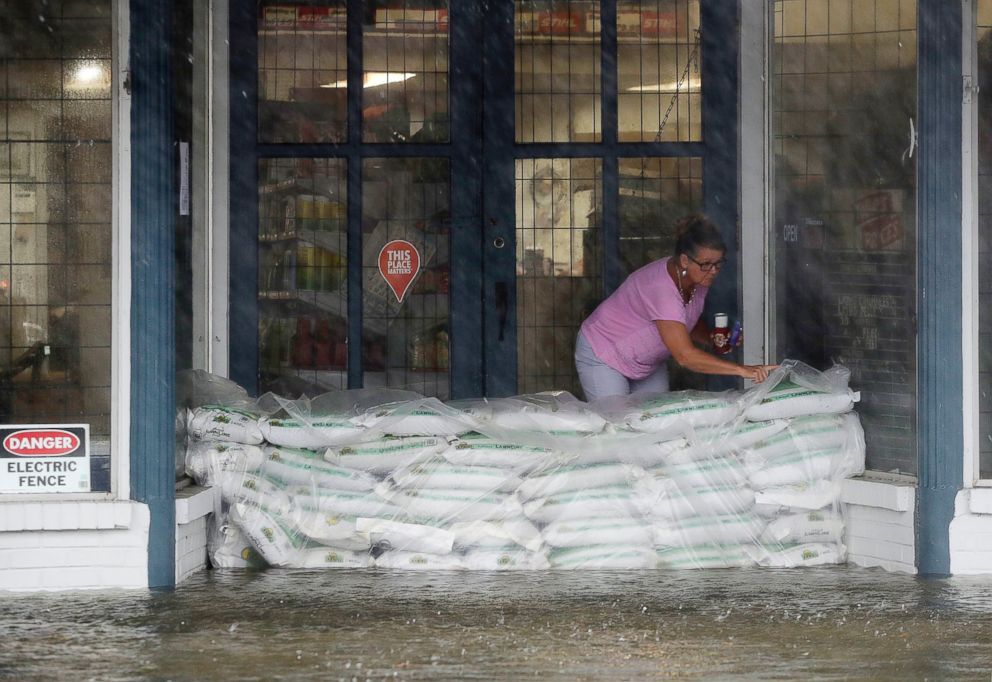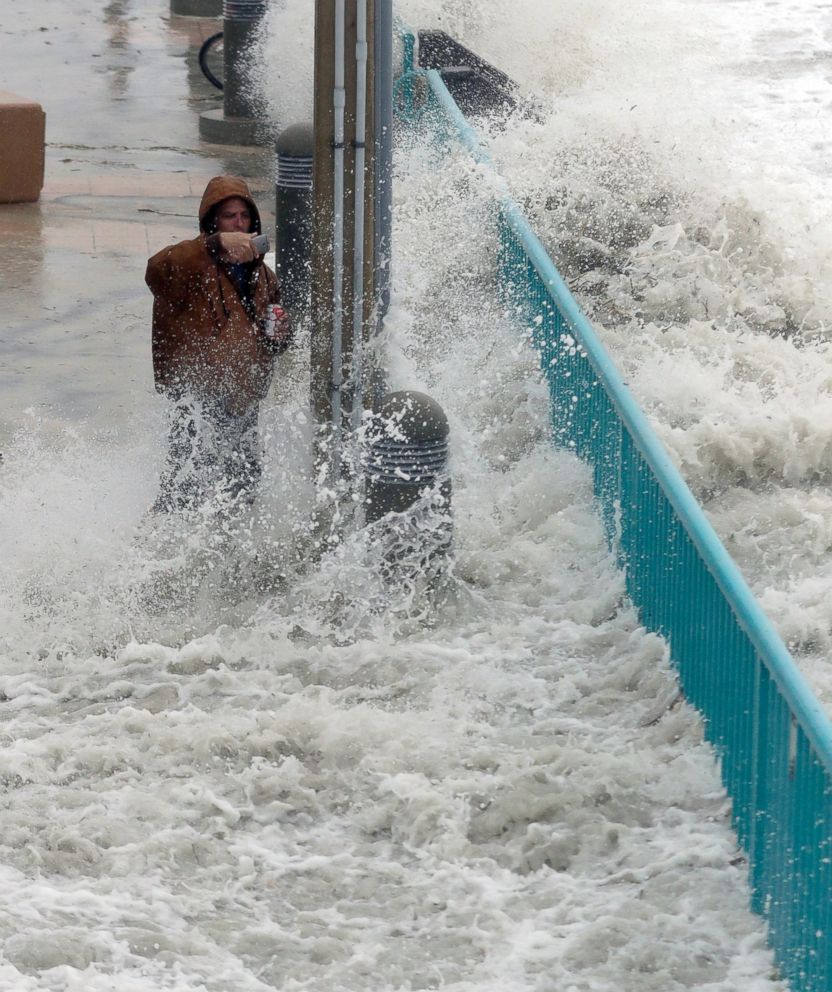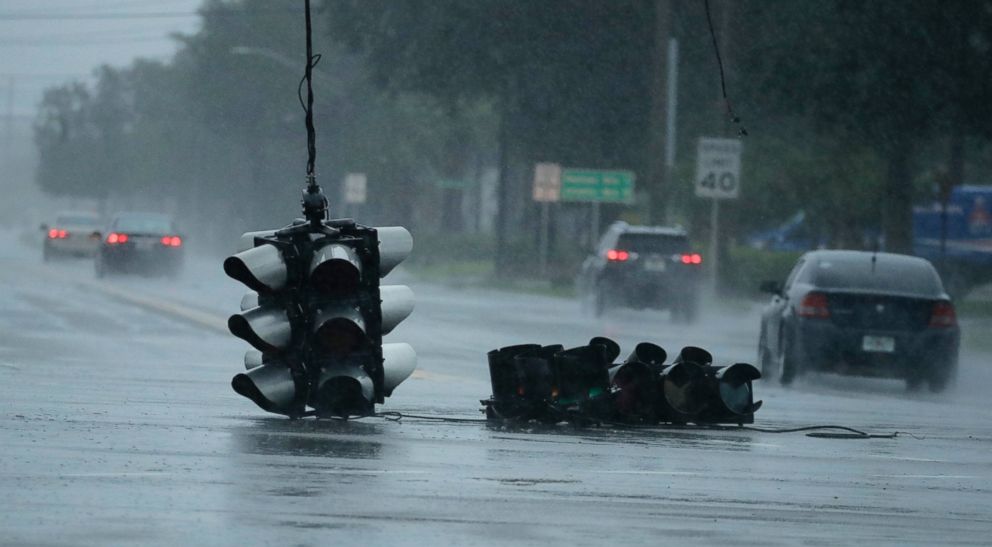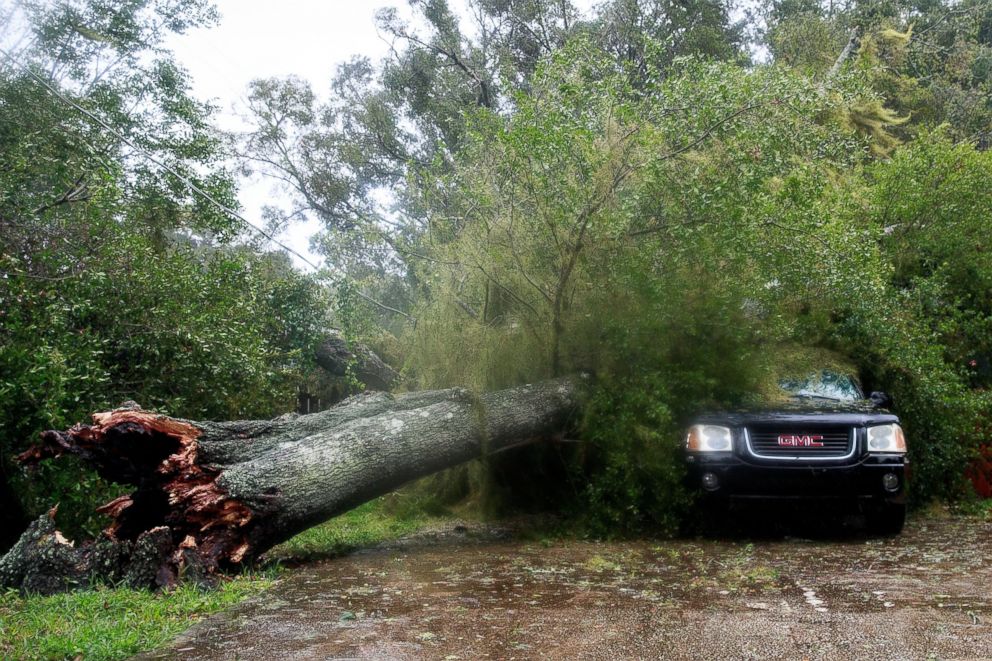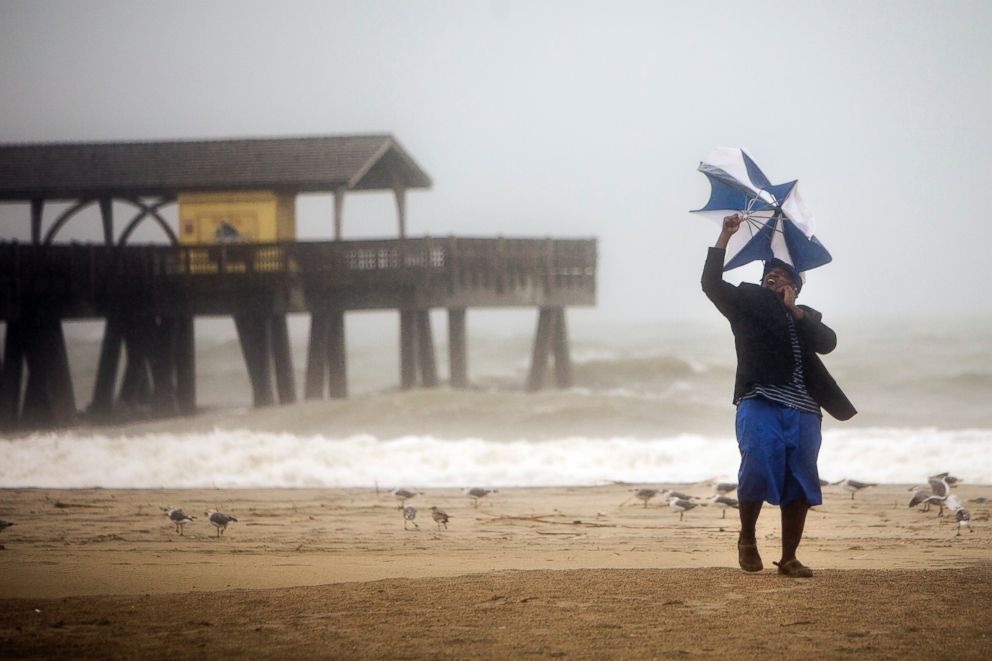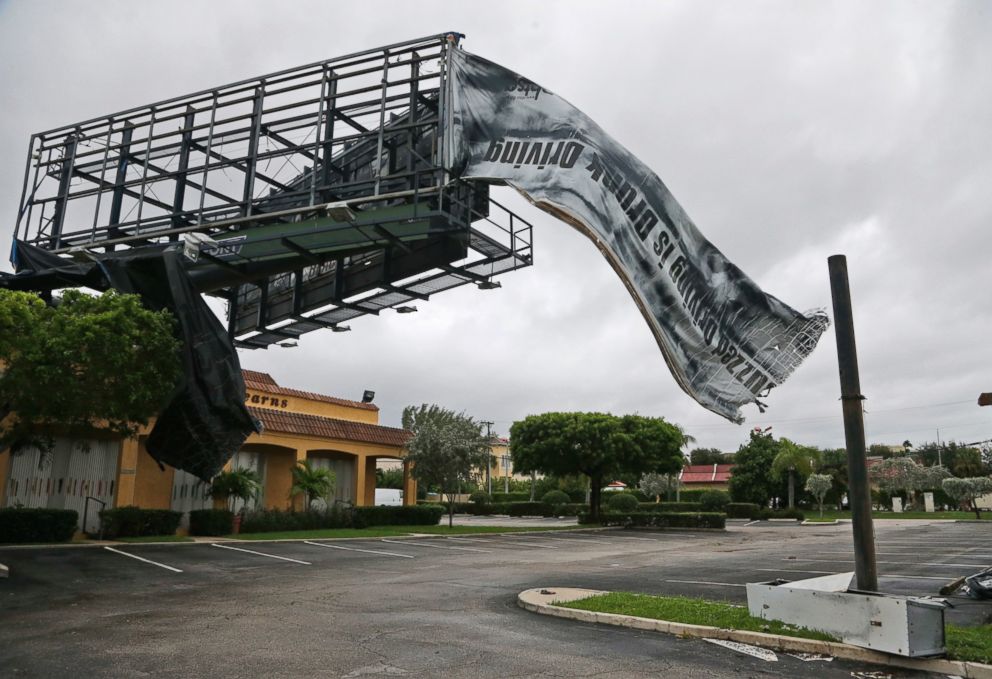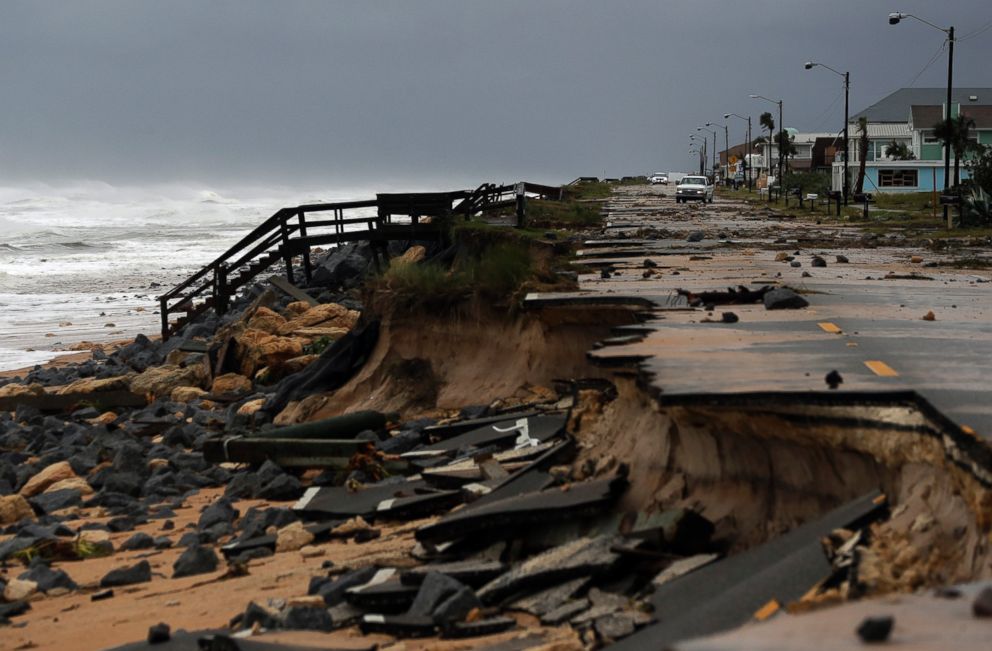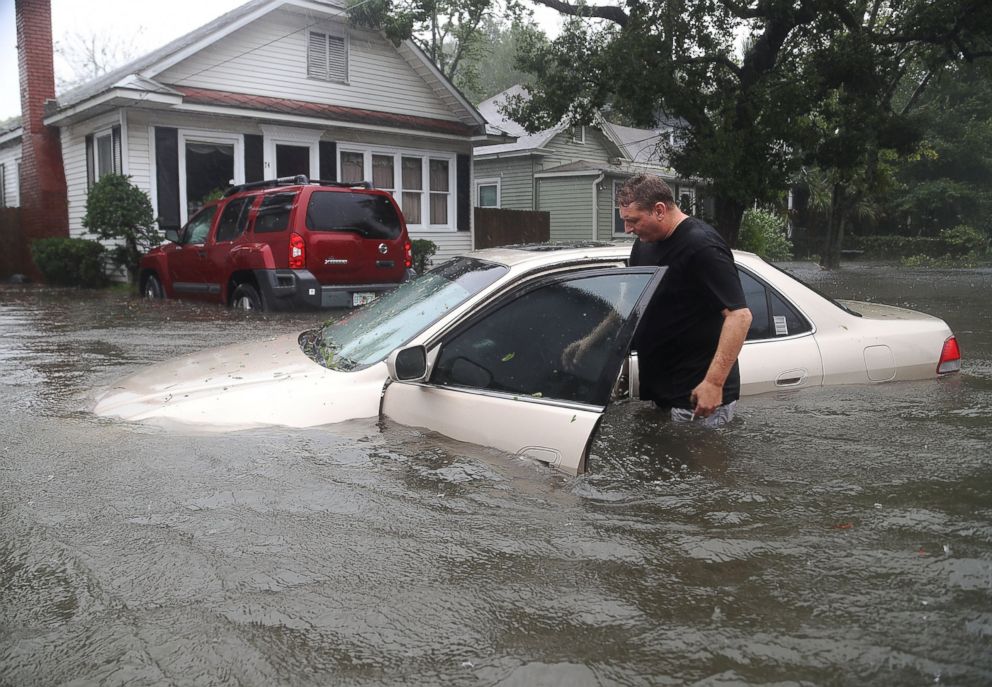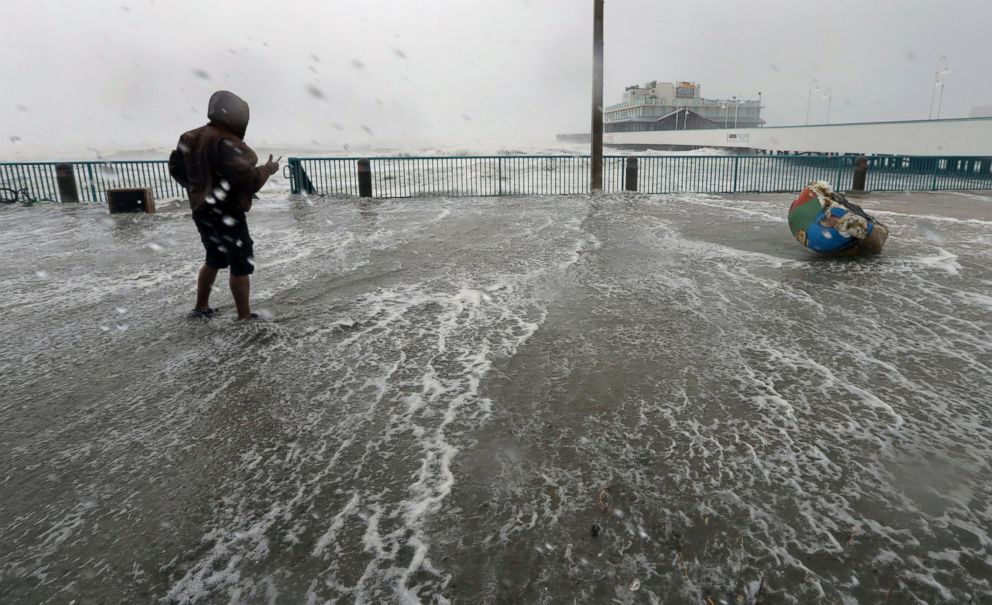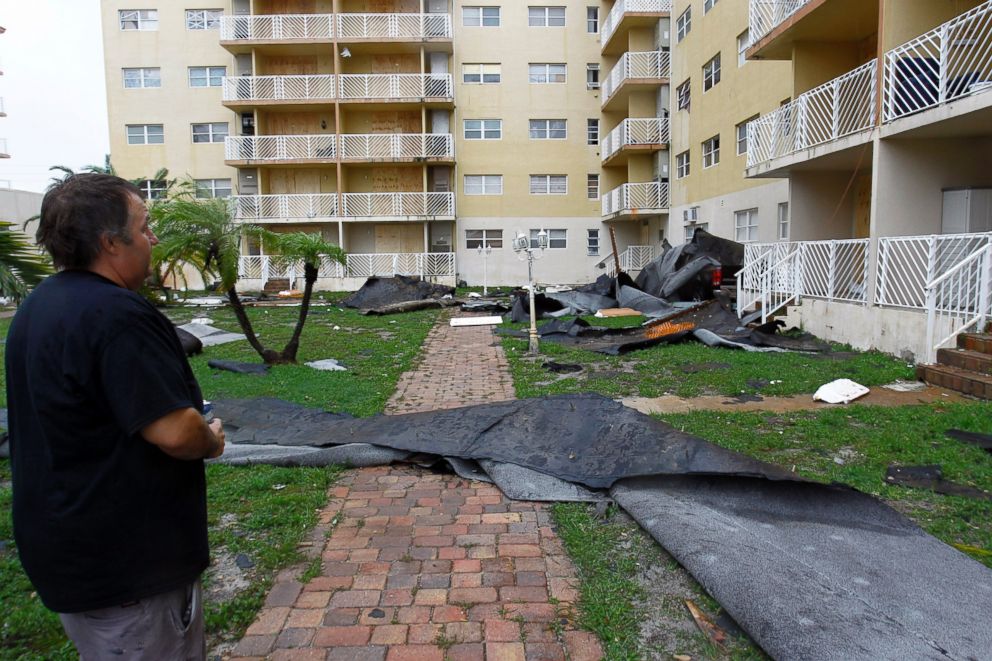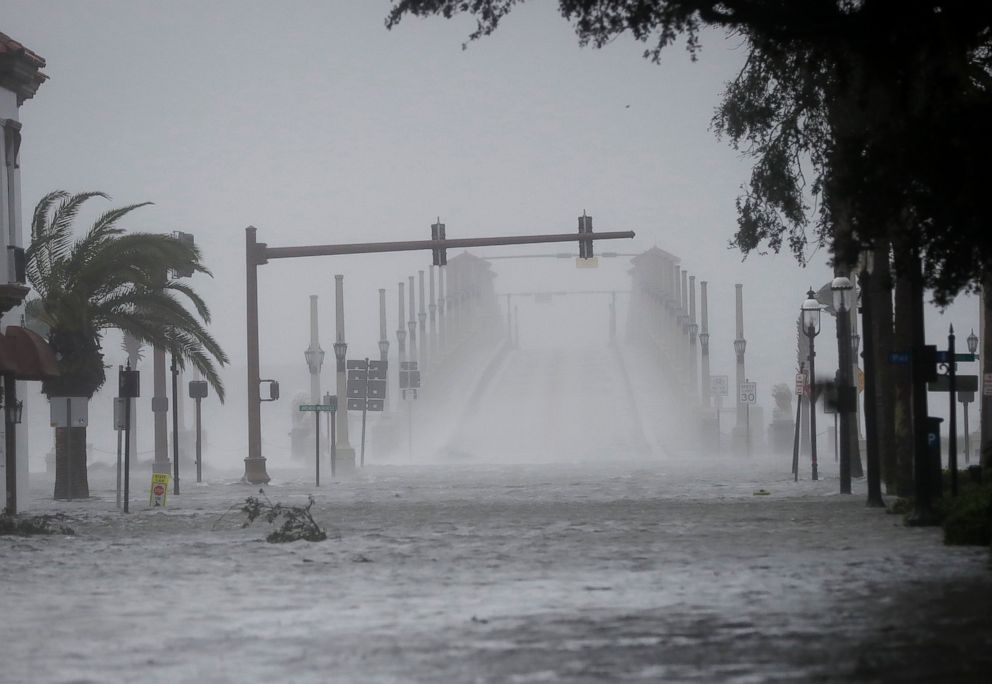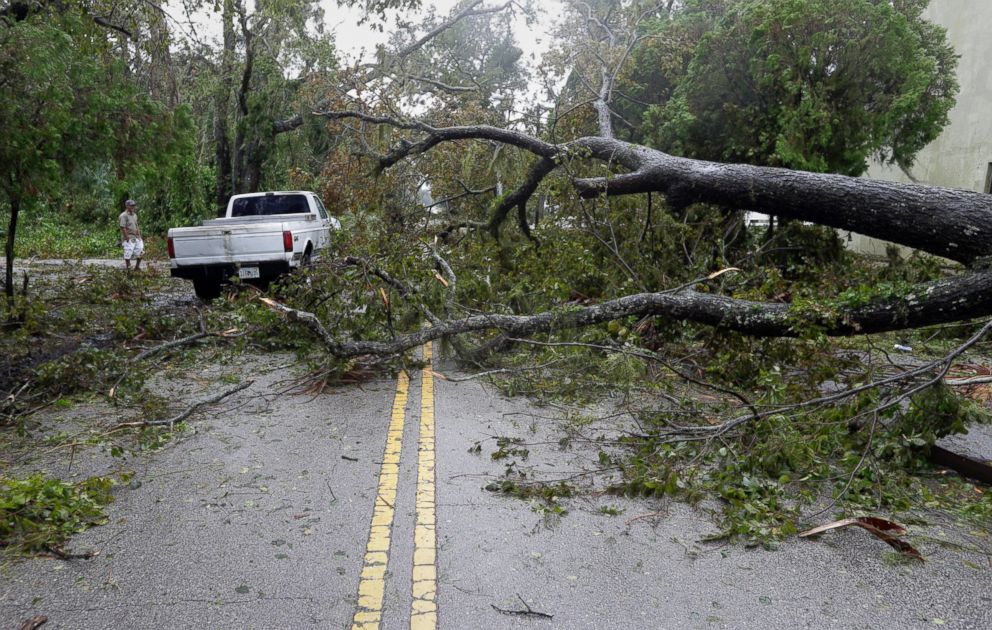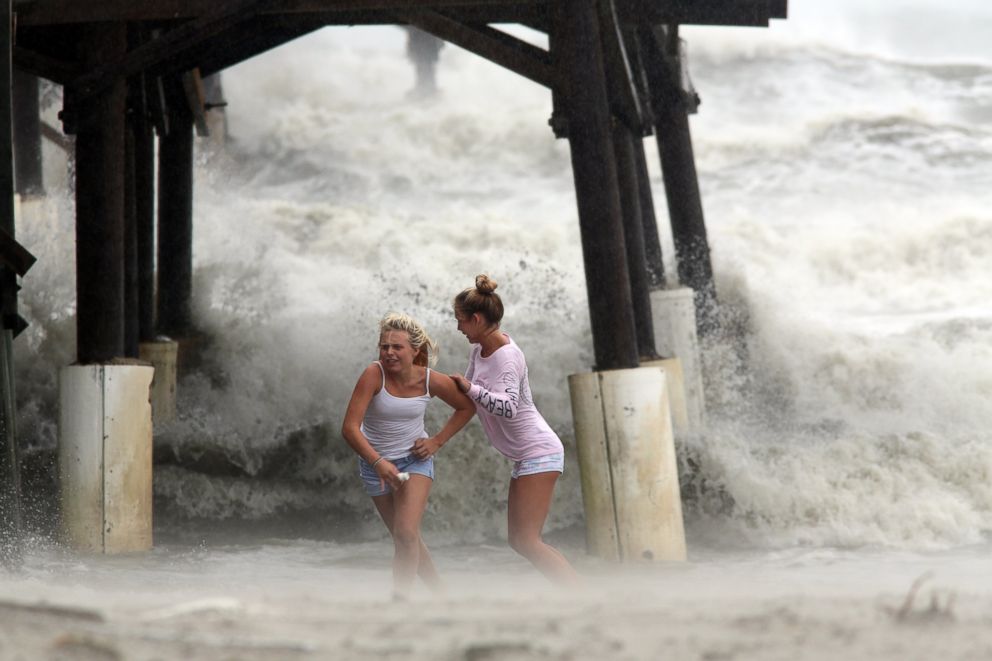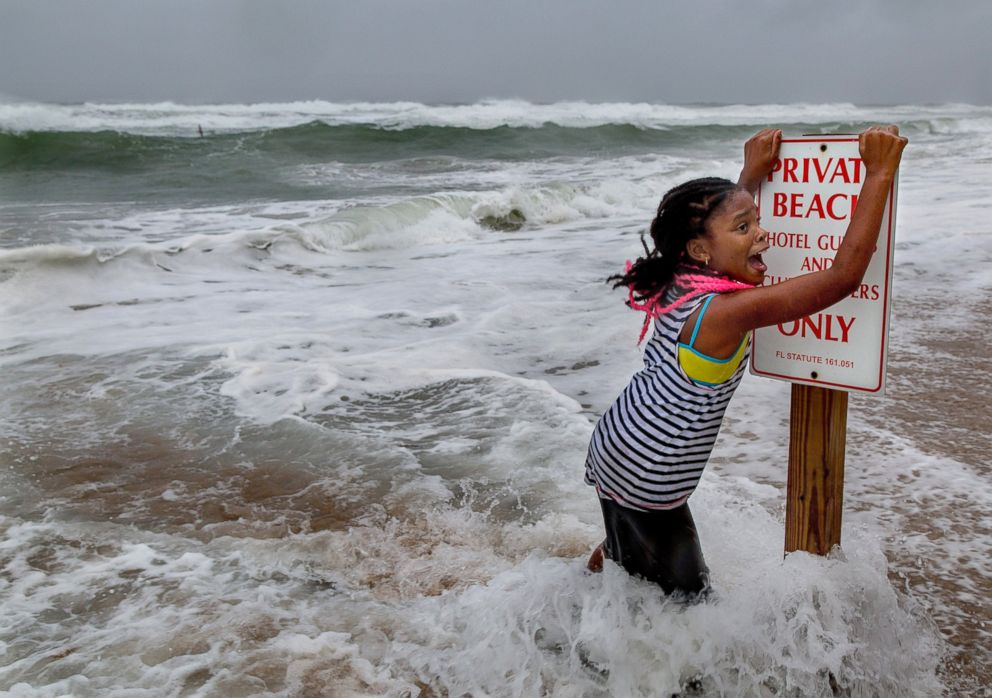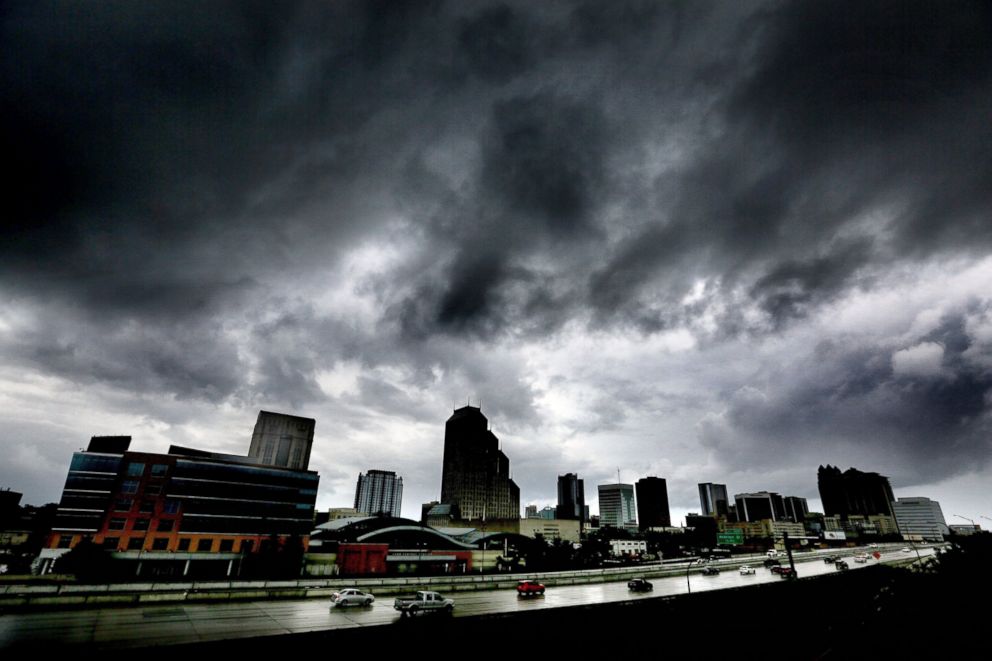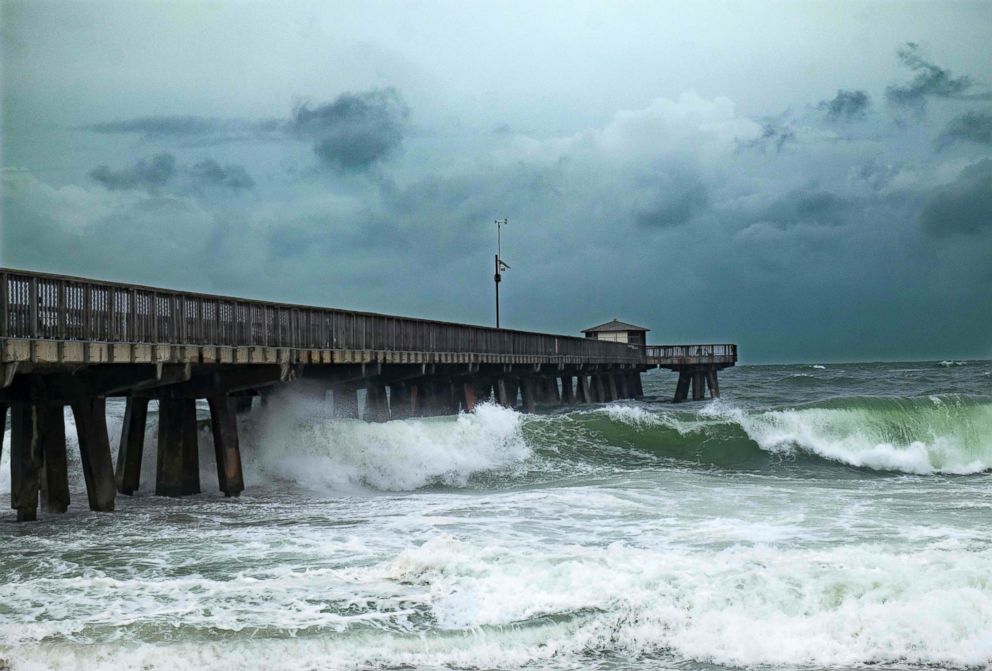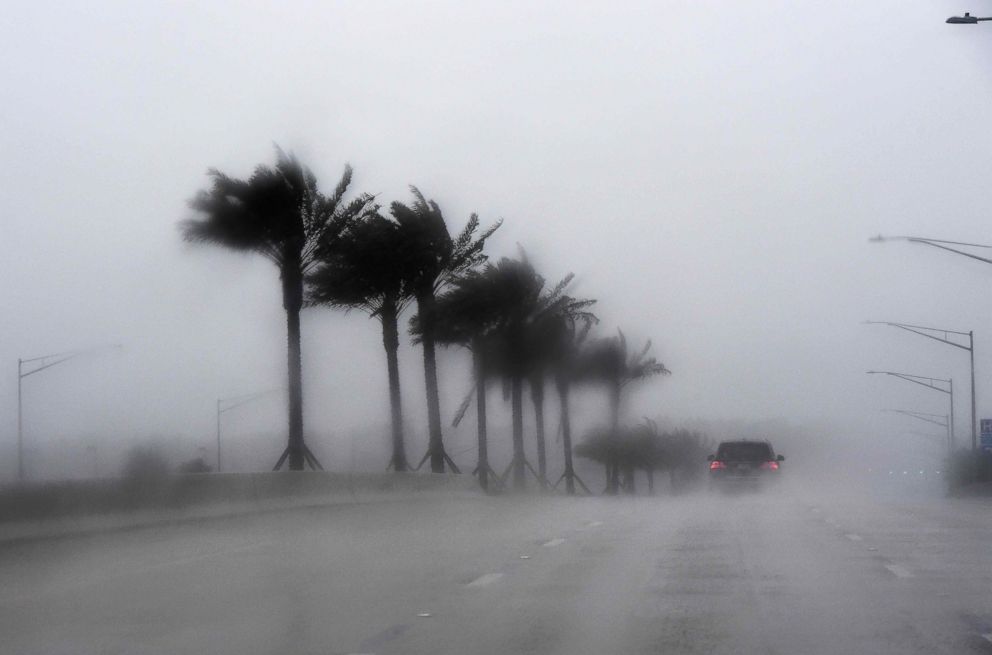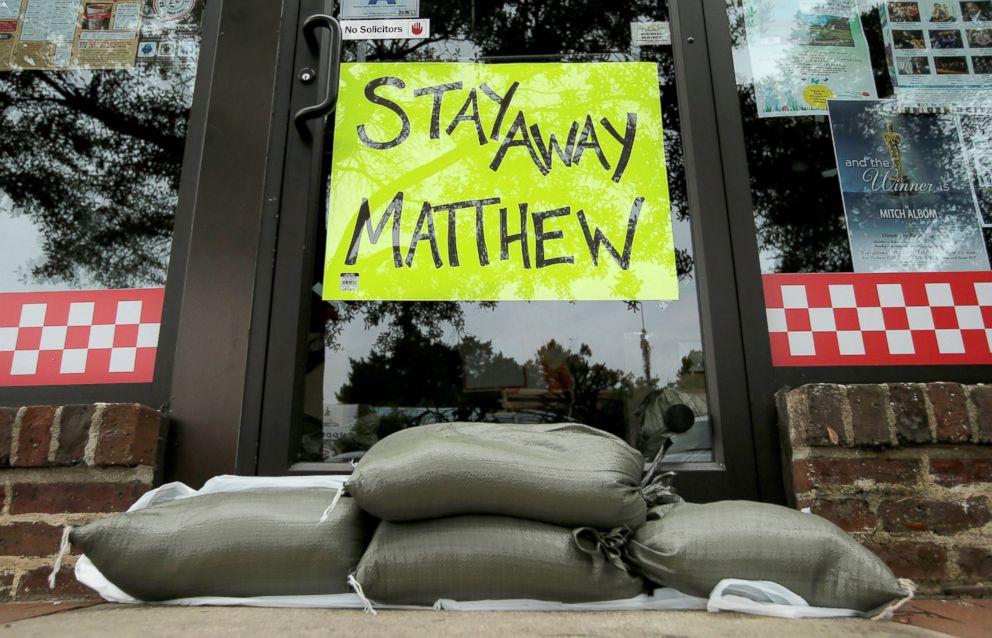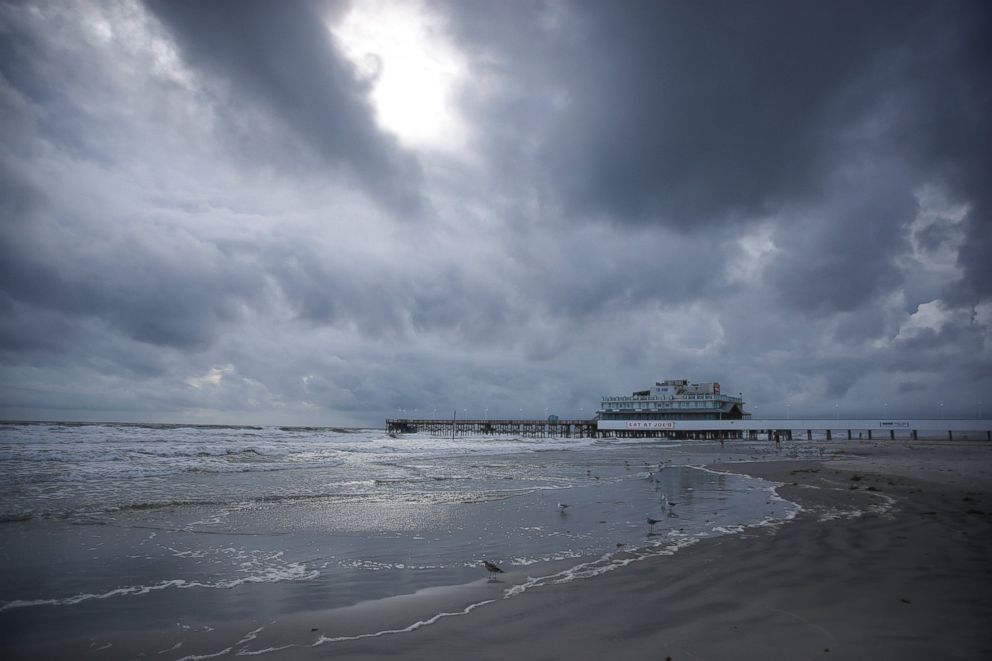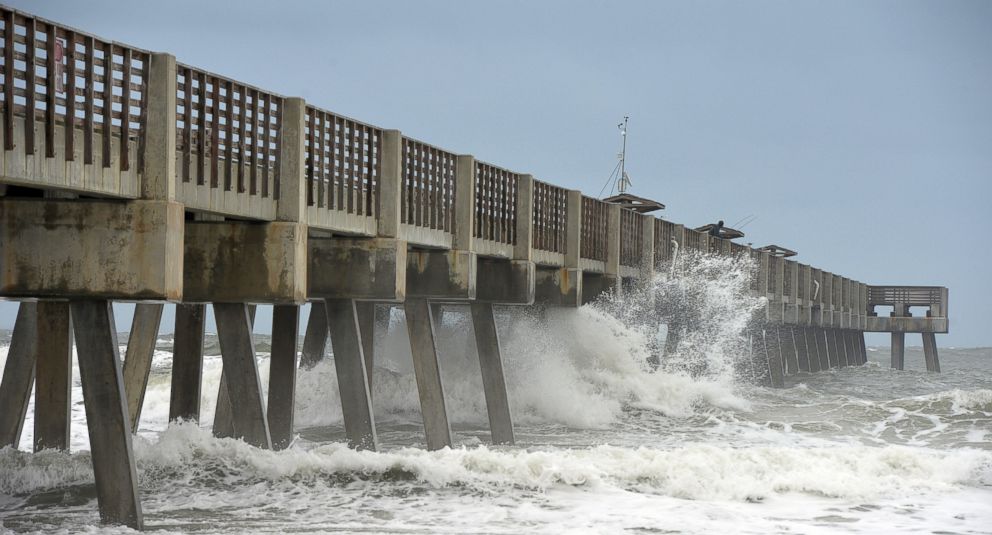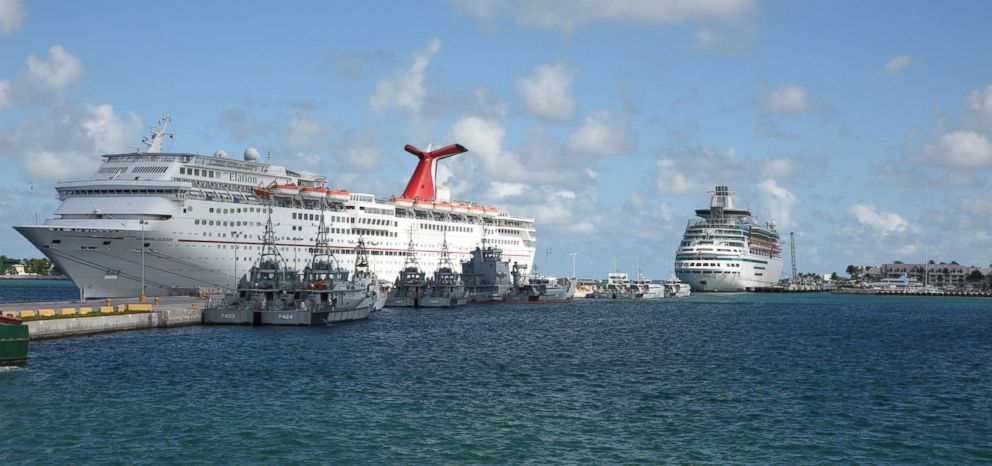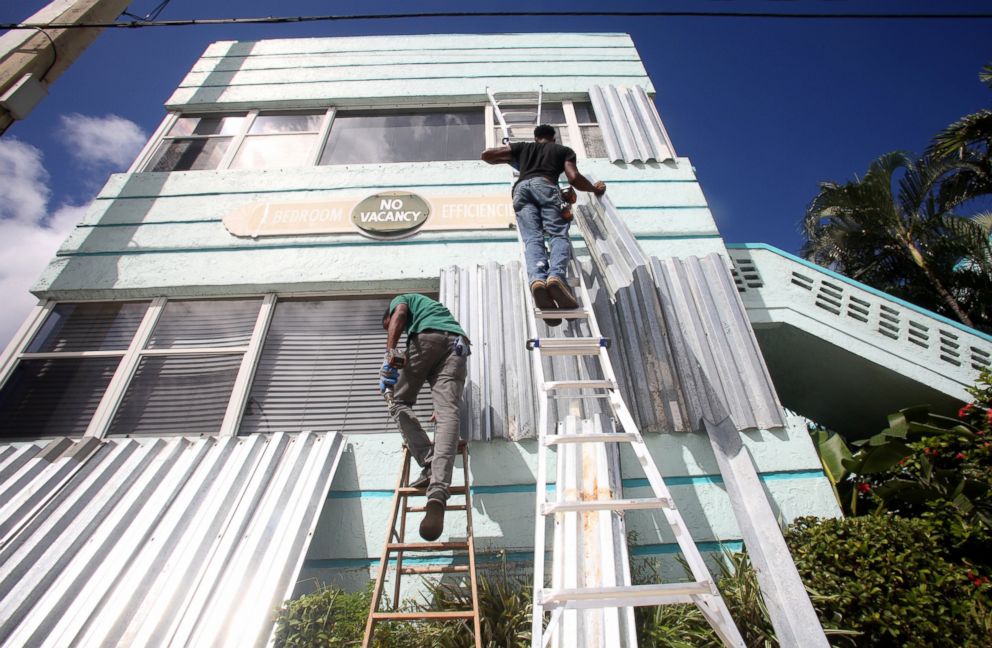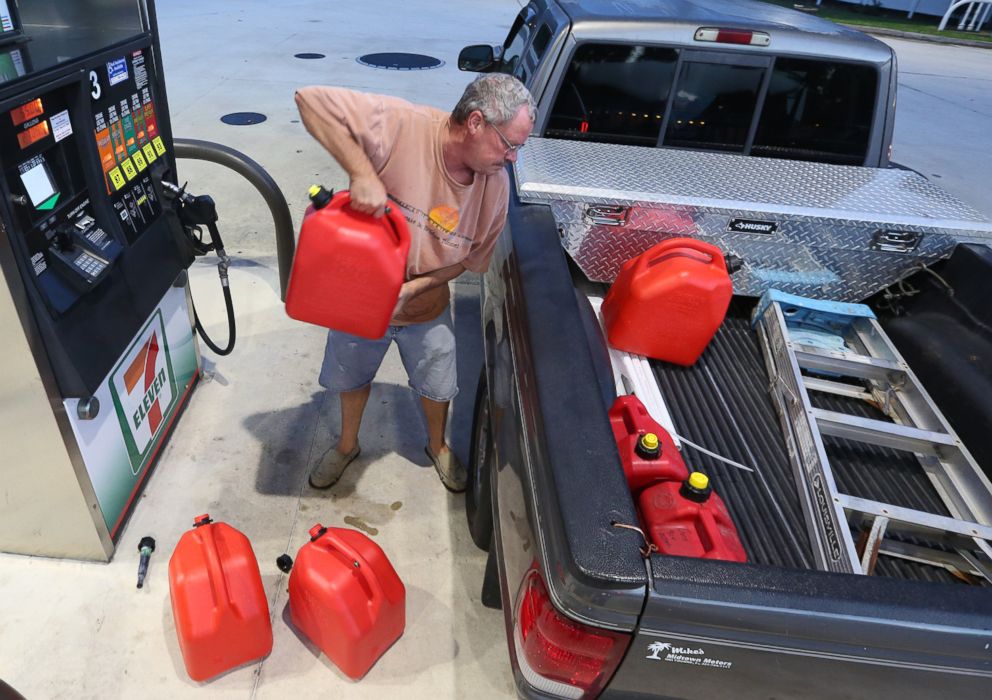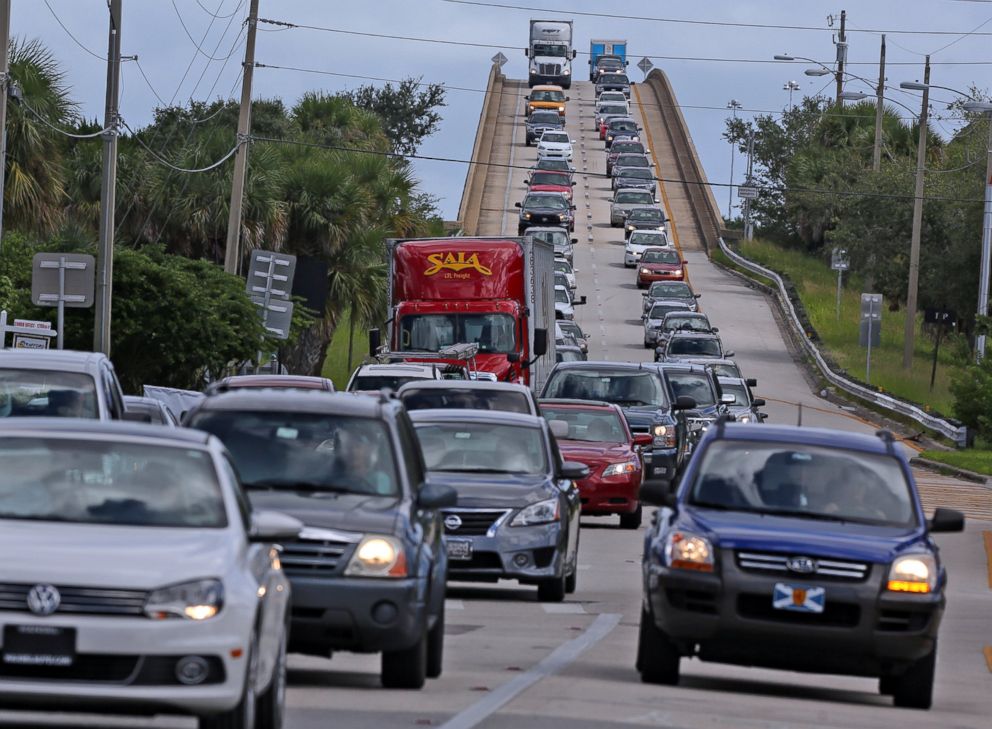North Carolinians Urged to Stay Away From Water as Rising Rivers Bring Record Flooding
"Stay away from the water," the governor said. "It will kill you."
— -- With the death toll in North Carolina climbing to 20 today in the wake of Hurricane Matthew, the governor is urging residents to stay away from the water as rising rivers bring record flooding.
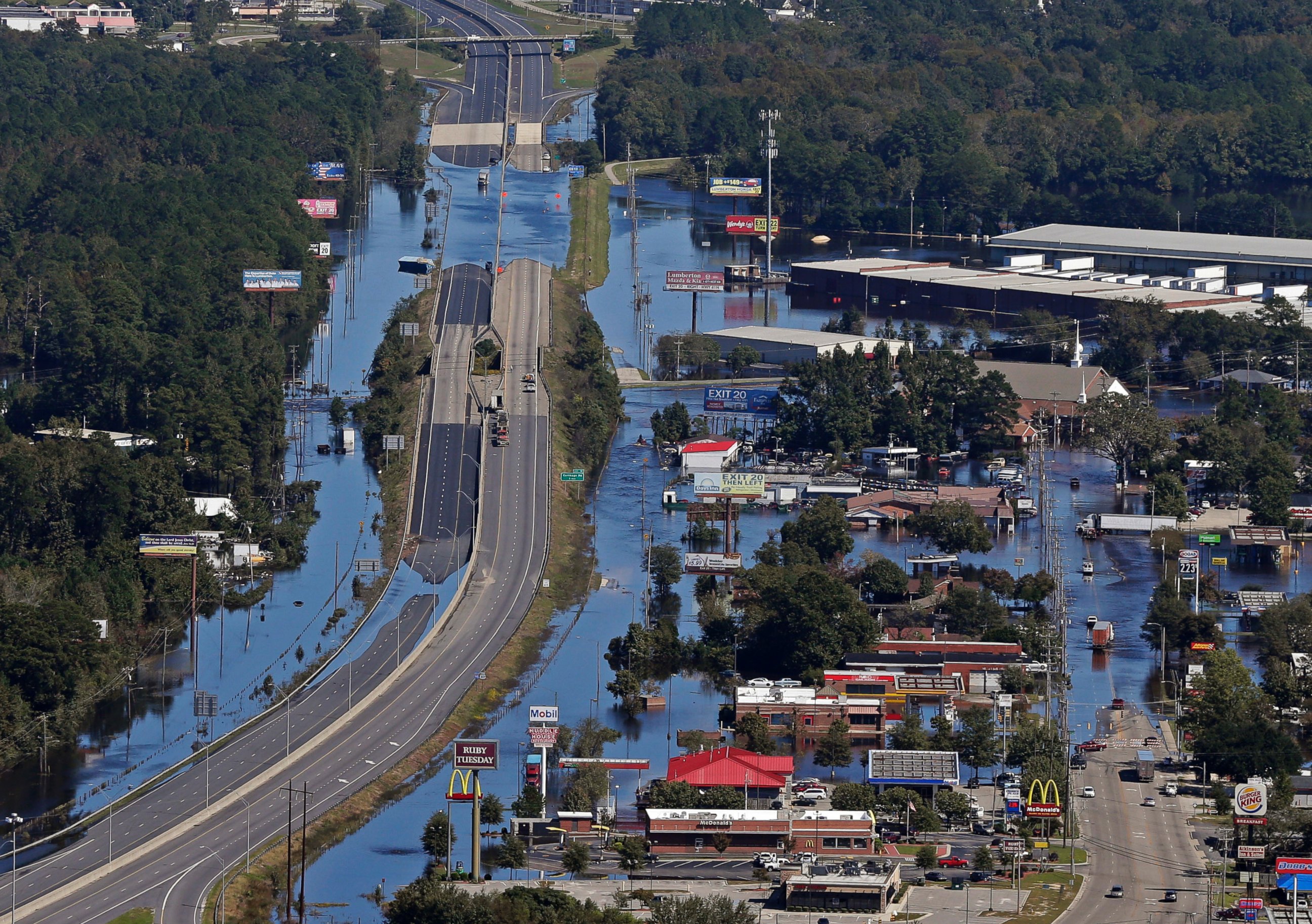
Along the Neuse River, crests are projected for some areas to surpass record levels from Hurricane Floyd in 1999.
The Neuse River near Goldsboro crested today at a record 29.74 feet and is now slowly receding.
Gov. Pat McCrory said this afternoon current concerns are for Greenville and Kinston, where rivers are expected to crest this week.
The Tar River at Greenville is still rising this afternoon and is forecast to crest Thursday afternoon. A mandatory evacuation remains in place there. After Thursday, the river will slowly recede, but will remain in a major flood stage through the weekend.
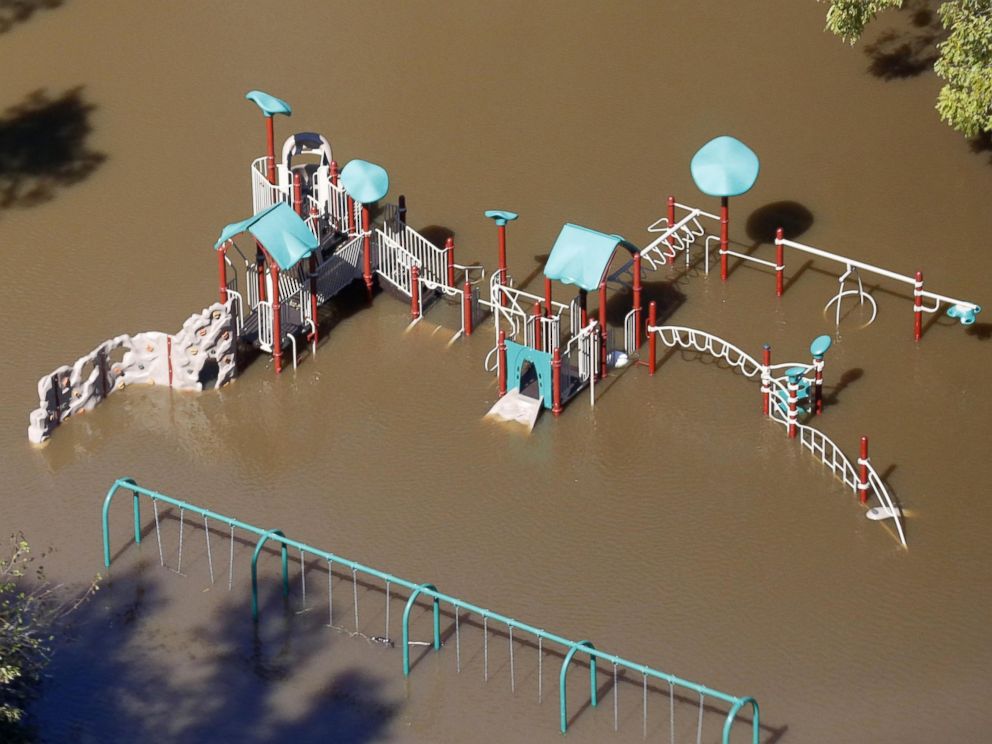
The Neuse River at Kinston remains on the rise this afternoon and will be double the flood stage by early Saturday morning, when it could reach a record 28 feet.
This afternoon McCrory spoke from Kinston, where he toured the damage.
"People are suffering. They've lost their homes, their cars," he said, "And they're still in a state of shock."
Hurricane Matthew Leaves Flooding and Destruction in its Wake
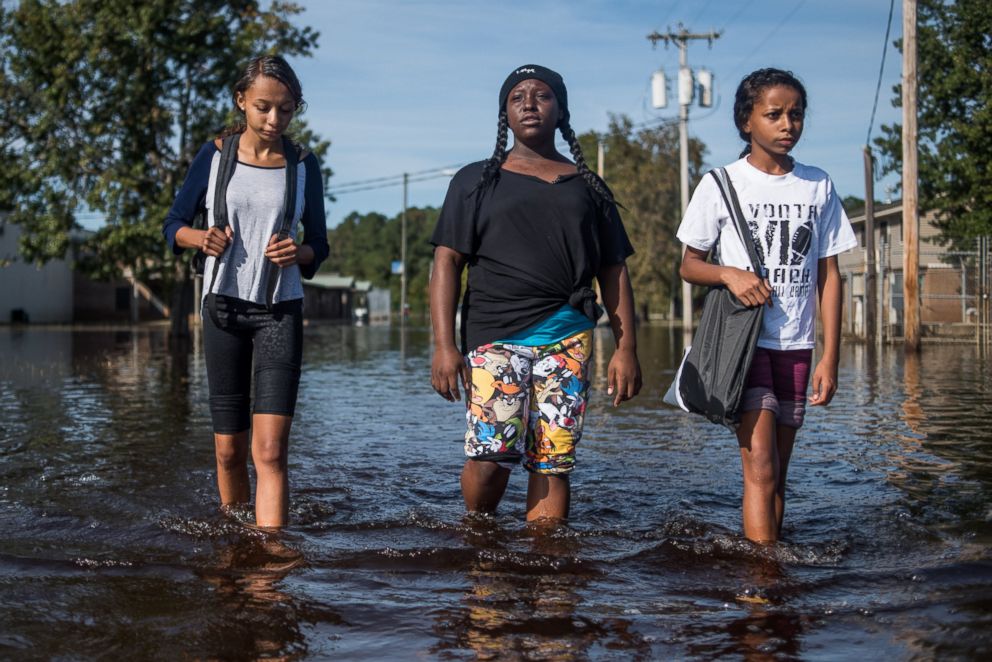
Two elementary schools are underwater and several roads and homes remain underwater.
"Even though skies are blue, Matthew is still with us," McCrory said.
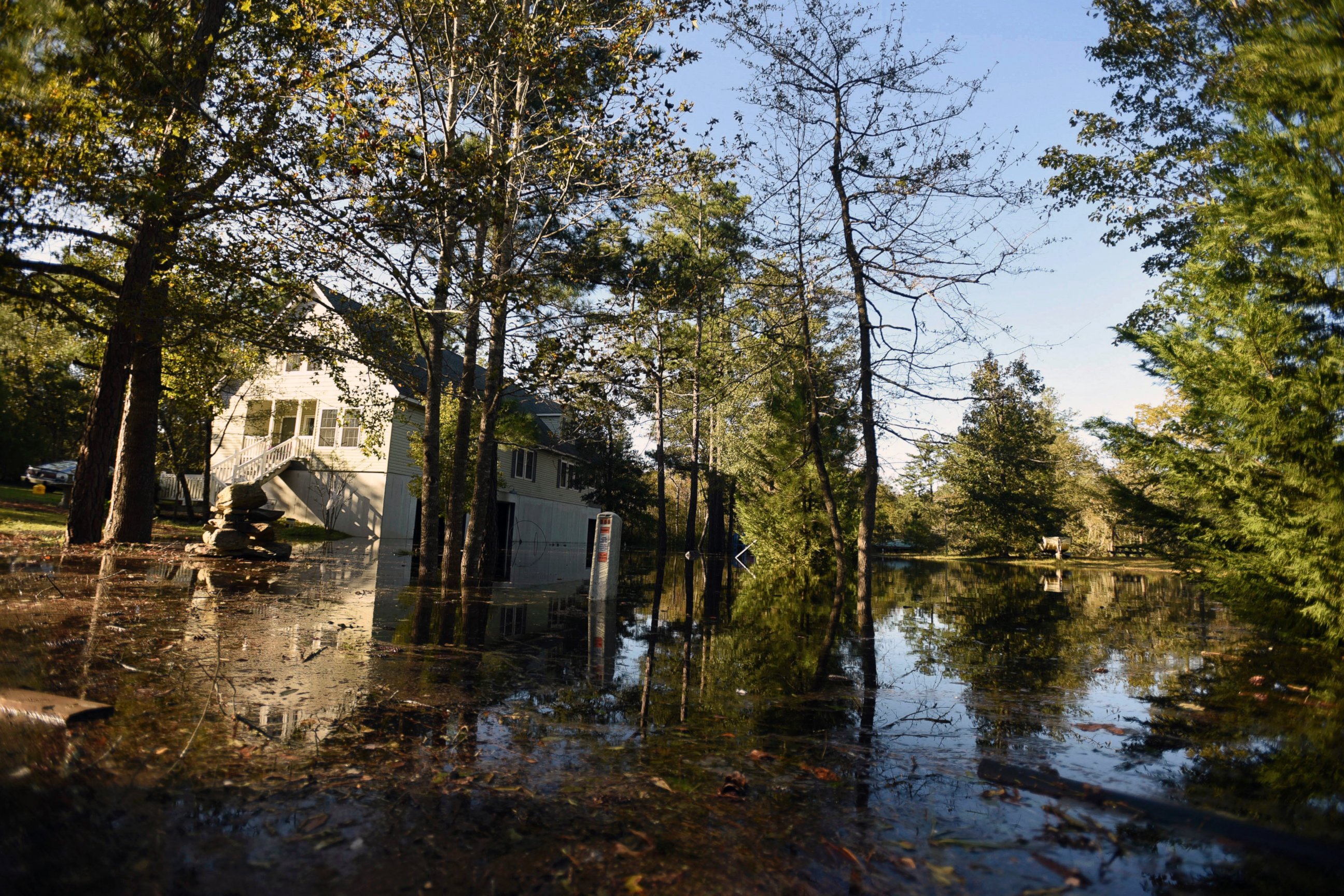
Kinston is in Robeson County, which is one of the state's biggest concerns; many people are without power and are still facing rescue issues.
"People here, the water went over and around the levee, and these people had no warning ... in the dead of night," McCrory said. "We had people wake up and their lives changed."
The Lumber River at Lumberton is another one of the state's worst flooding areas; it's in a record flood stage today and will remain that way for several days as the city of Lumberton remains underwater.
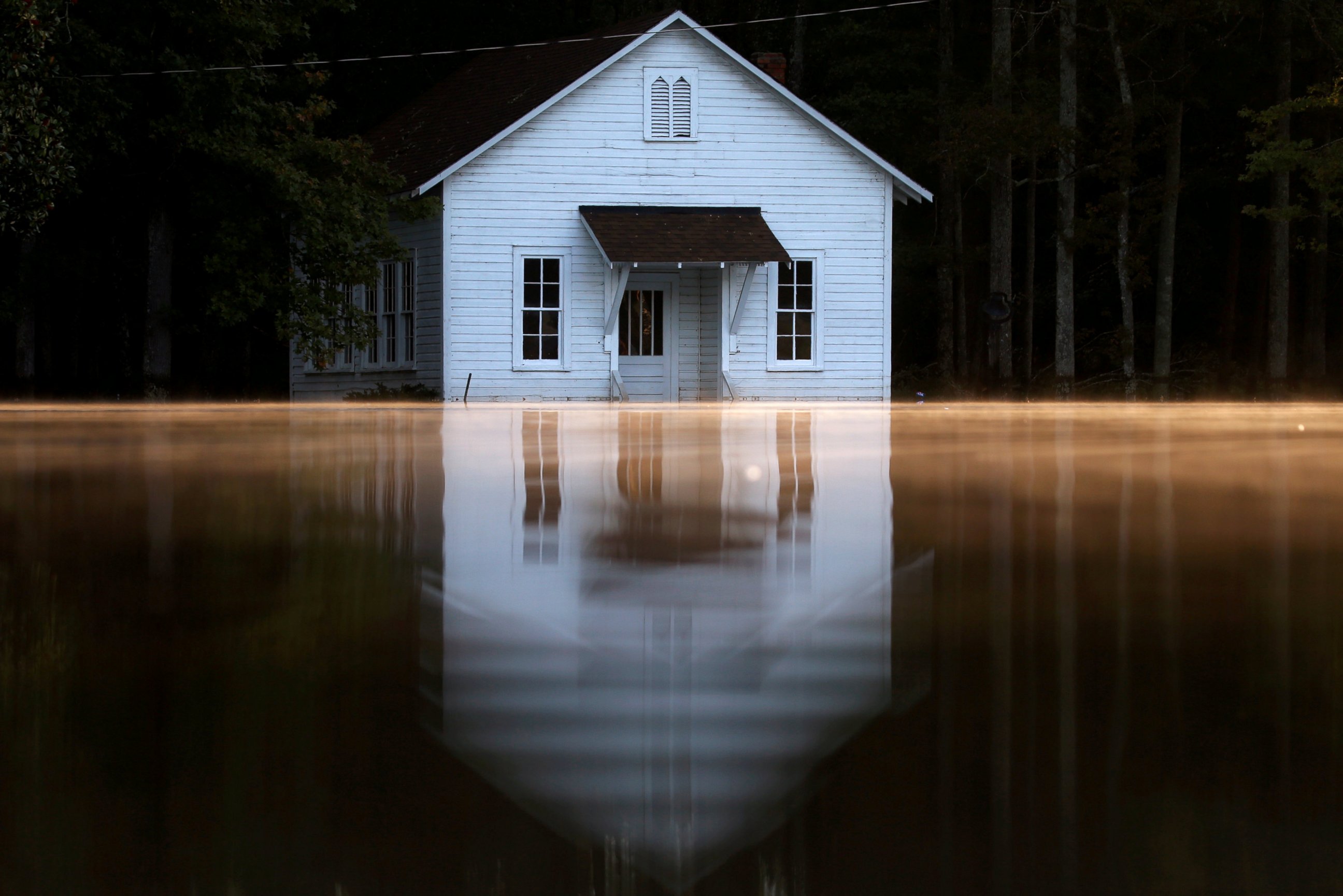
The death toll in North Carolina climbed to 20 this afternoon; 19 of those deaths were from drowning, officials said.
McCrory said this morning that he "cannot emphasize enough to stay away from the water."
"It will kill you," he said.
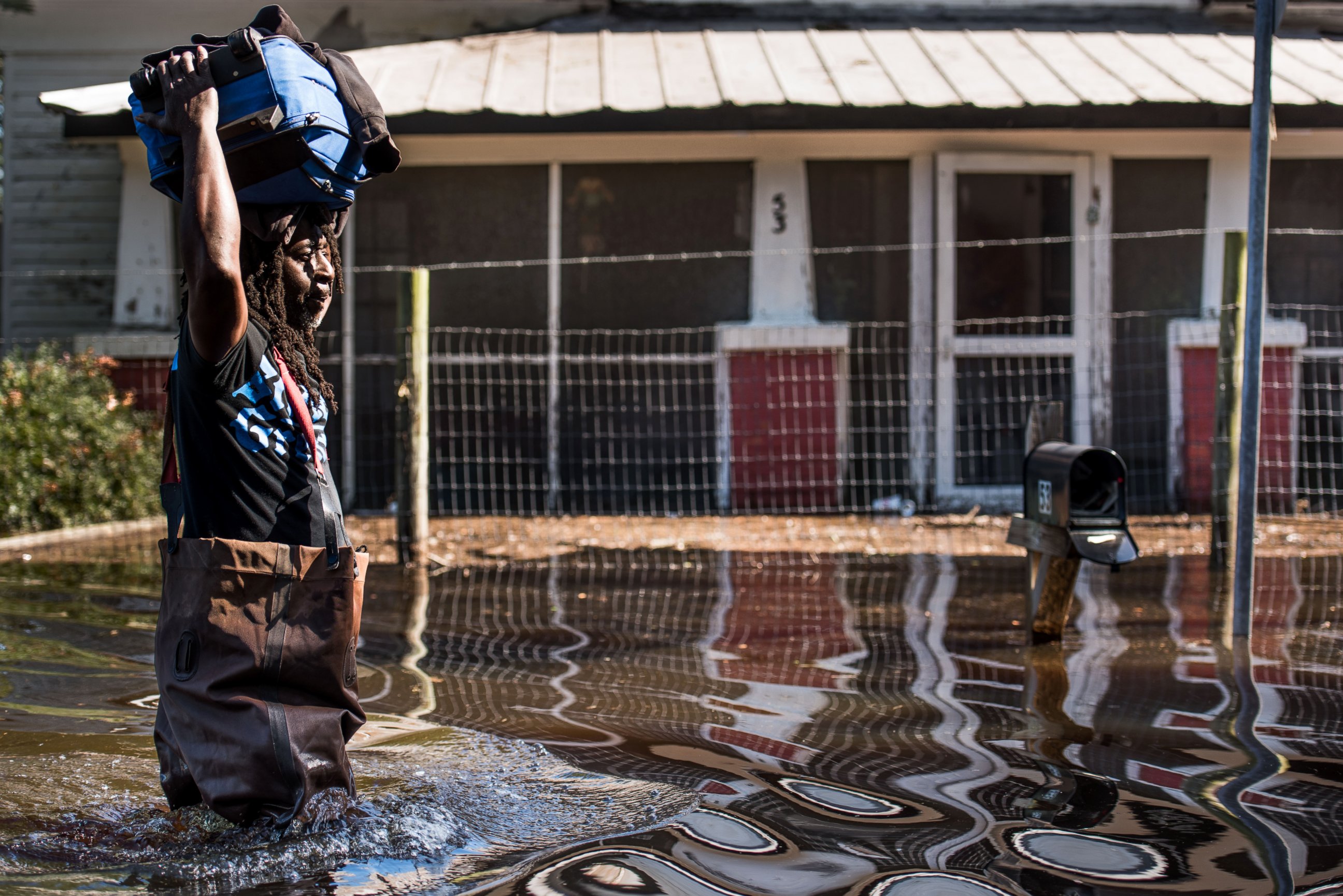
McCrory said as the "beautiful towns and cities" of North Carolina brace for more major flooding, "people are suffering" and "hurting."
More than 3,800 people are in shelters, he said.
He called it a "surreal experience and not one I'd like to repeat," but added that the state "will be resilient and deal with it."
The North Carolina town of Princeville is nearly completely evacuated, McCrory said, and evacuations are ongoing in Moore County, near Woodlake Dam. "You cannot guarantee that dam will hold," McCrory said, and urged anyone still there to leave.
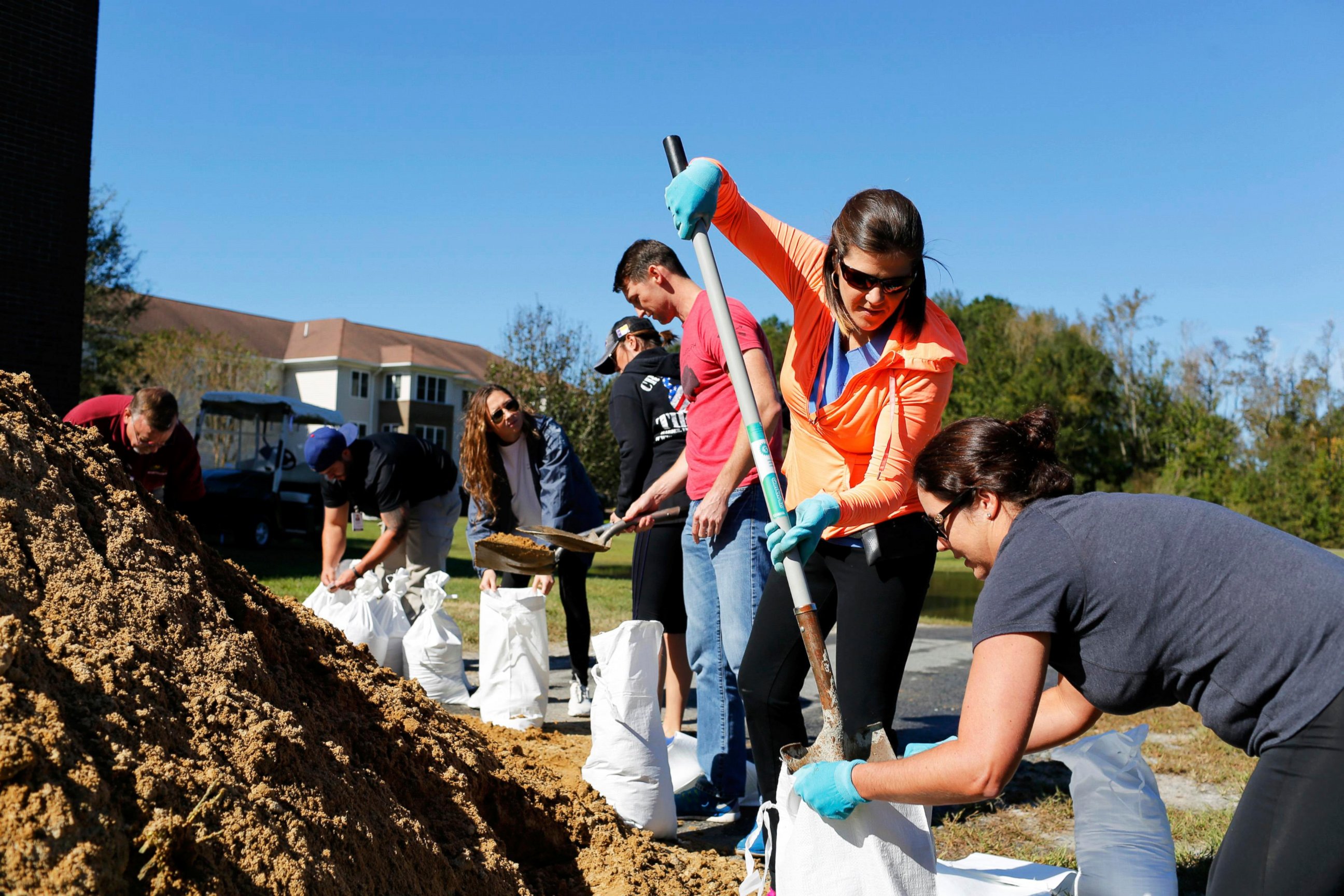
Rivers in South Carolina are also still rising and in major flood stage; one reached a record level of 17.1 feet this morning.
Overall, the storm has killed 38 people across Florida, Georgia, South Carolina, North Carolina and Virginia, according to authorities.
Before Matthew weakened and veered out to sea on Sunday, it brought winds of up to 100 mph, as much as 15 inches of rain and powerful storm surges of up to 9 feet in some areas.
The storm led to the evacuation of more than 3 million coastal residents, caused widespread power outages and has left billions of dollars in damage in its wake.
Today over 500,000 customers are without power across the five states.
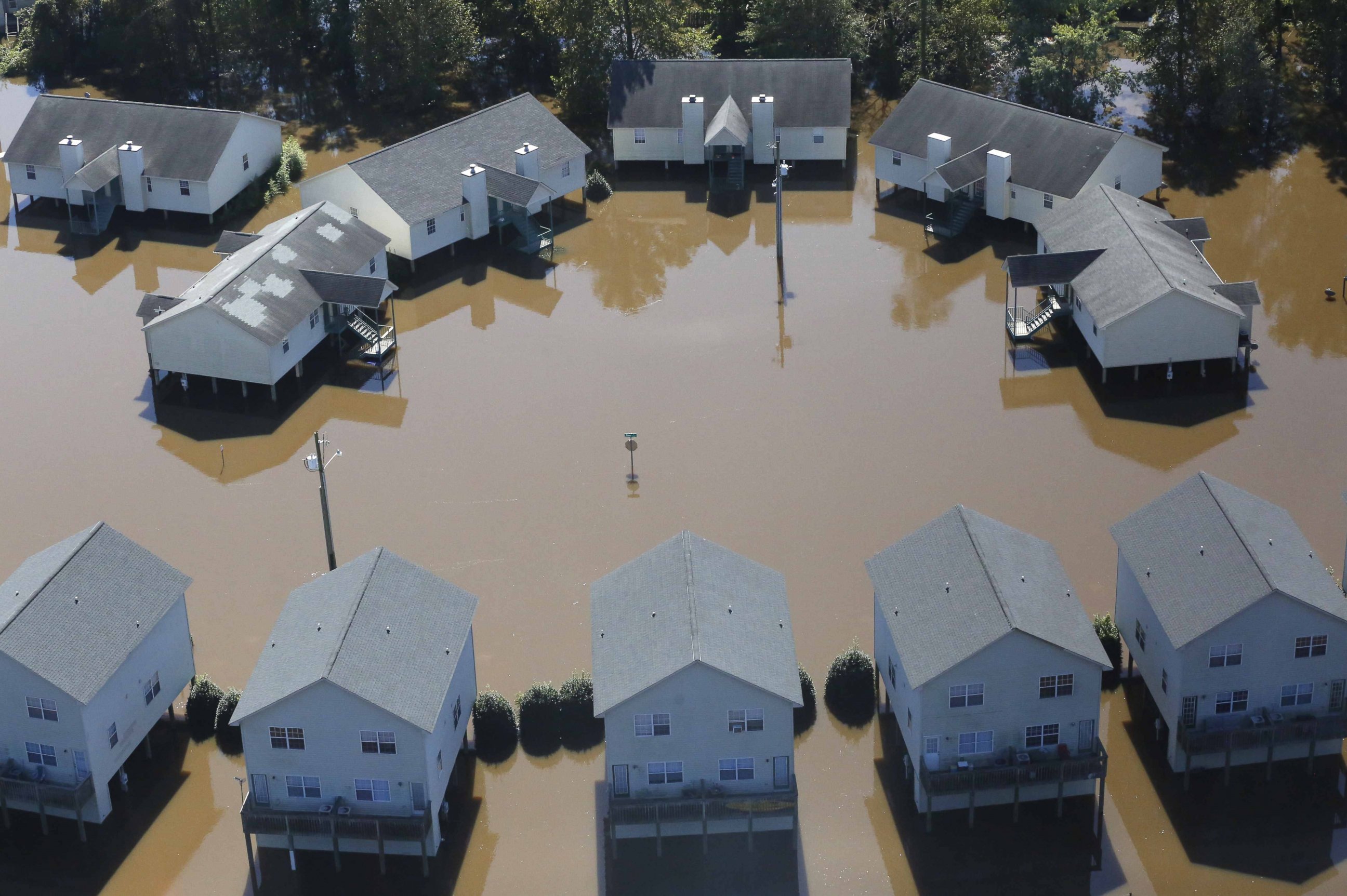
ABC News' Melissa Griffin and Jason Volack contributed to this report.
